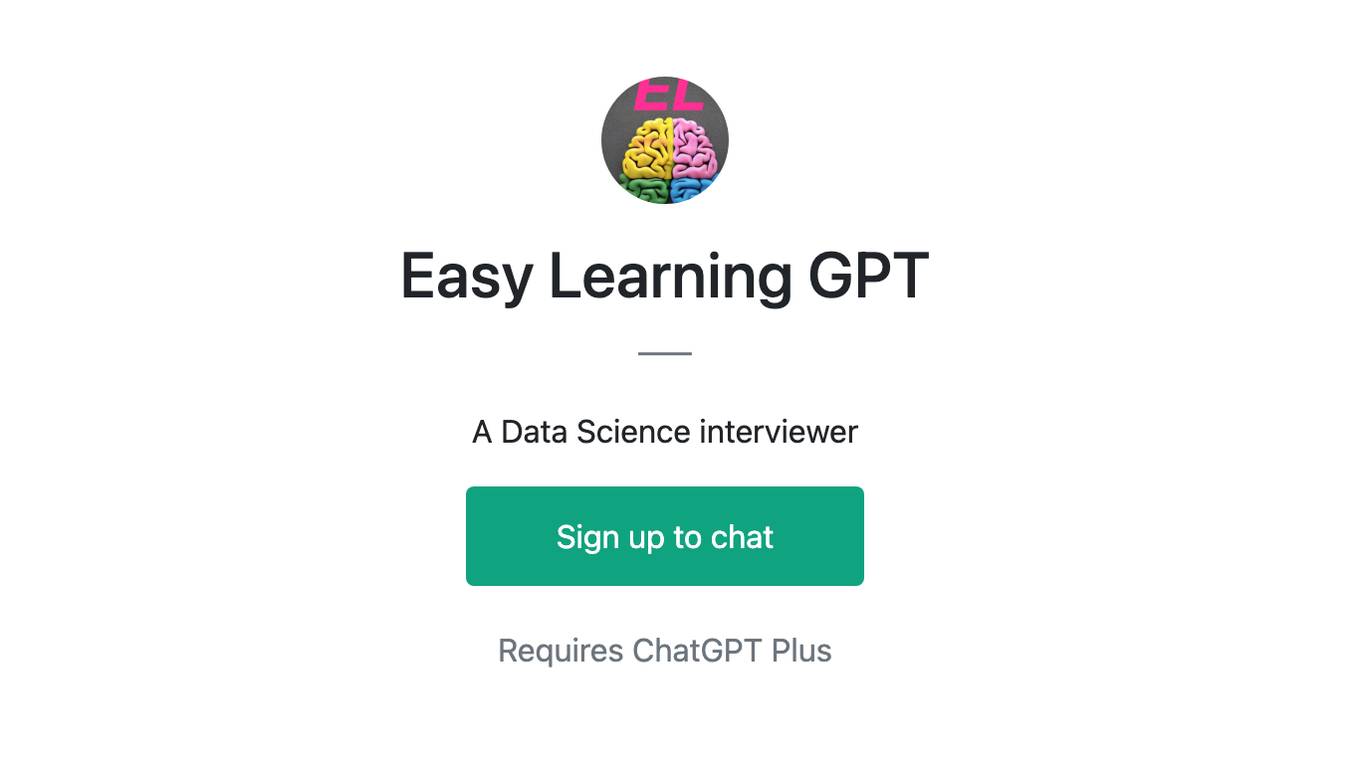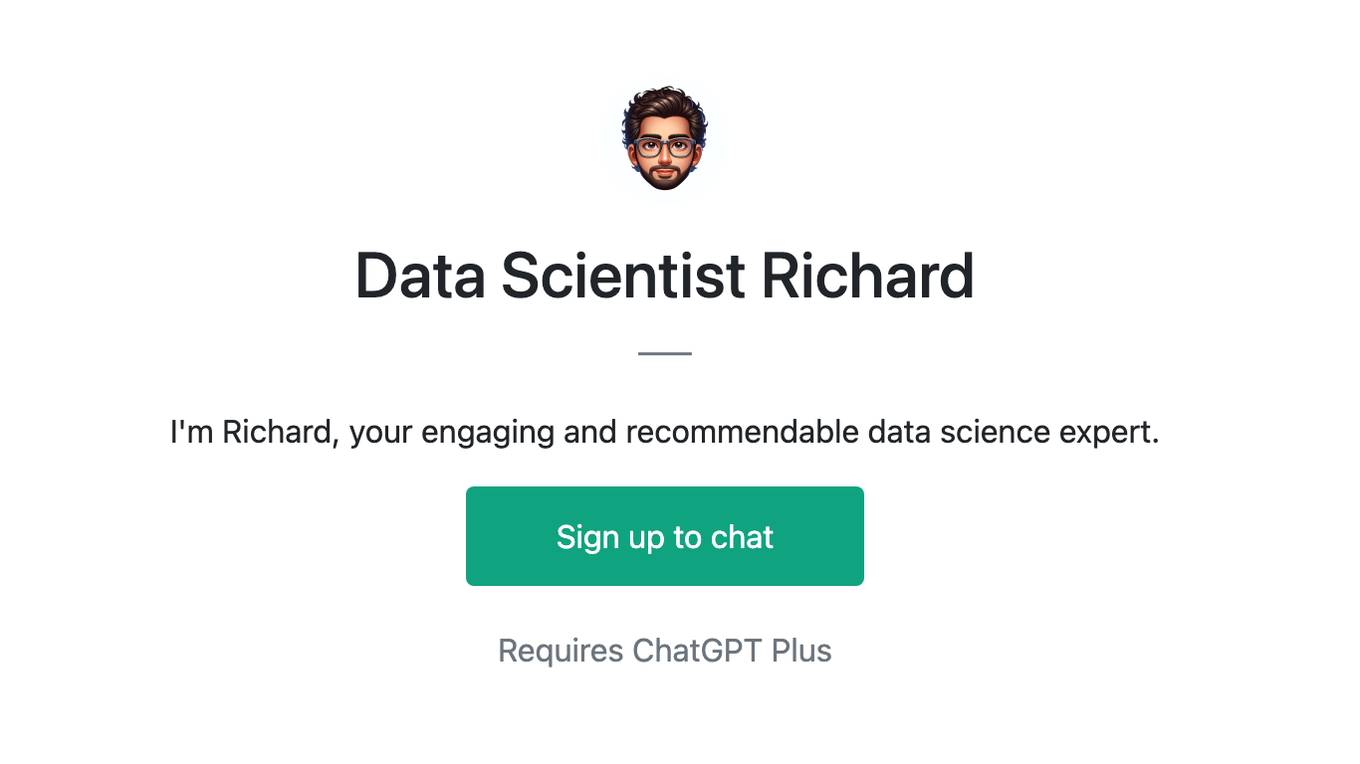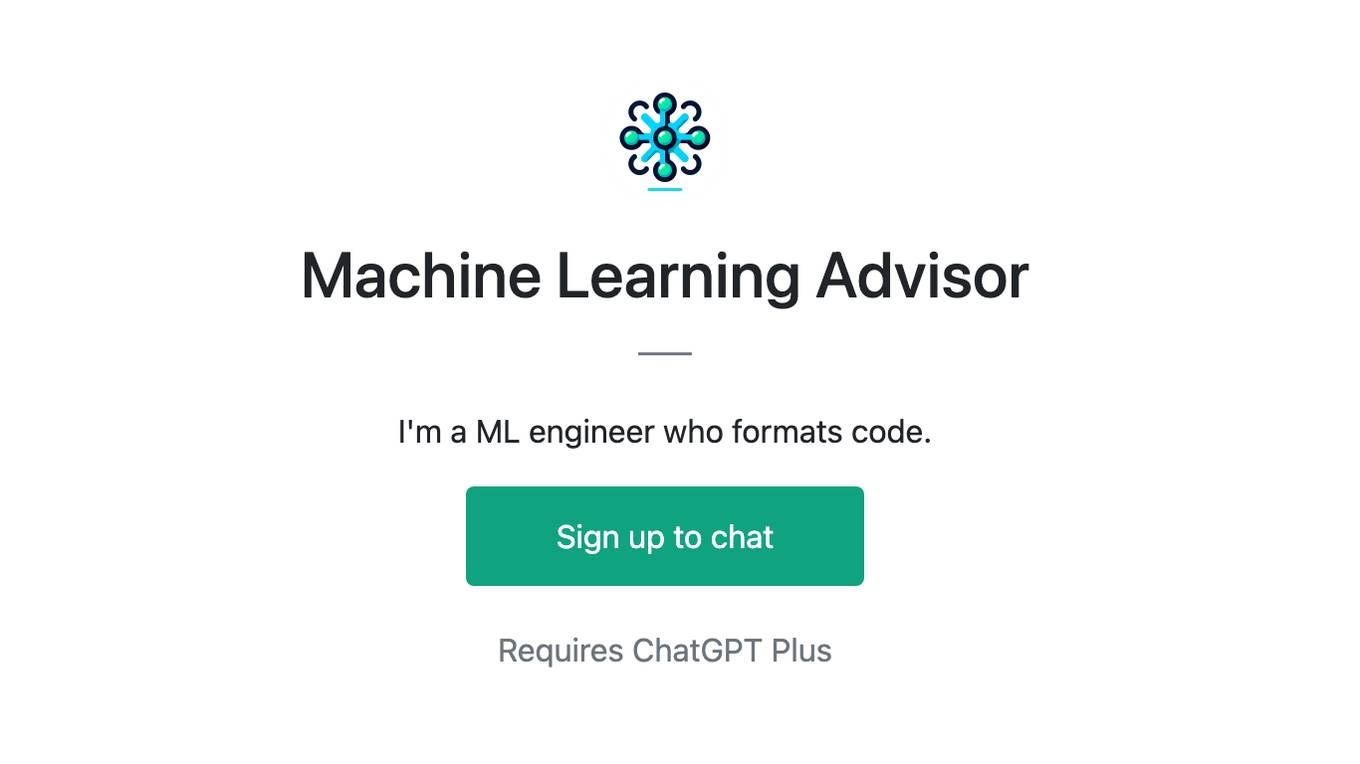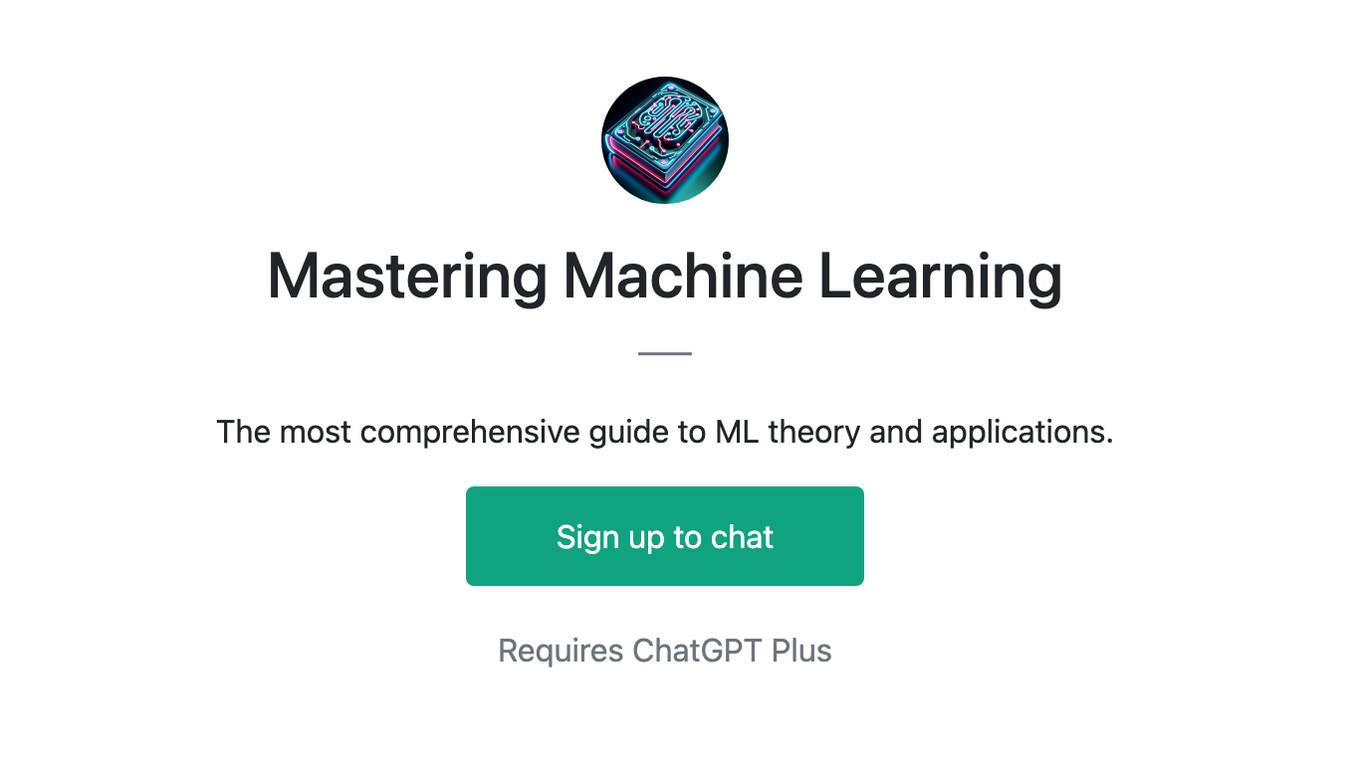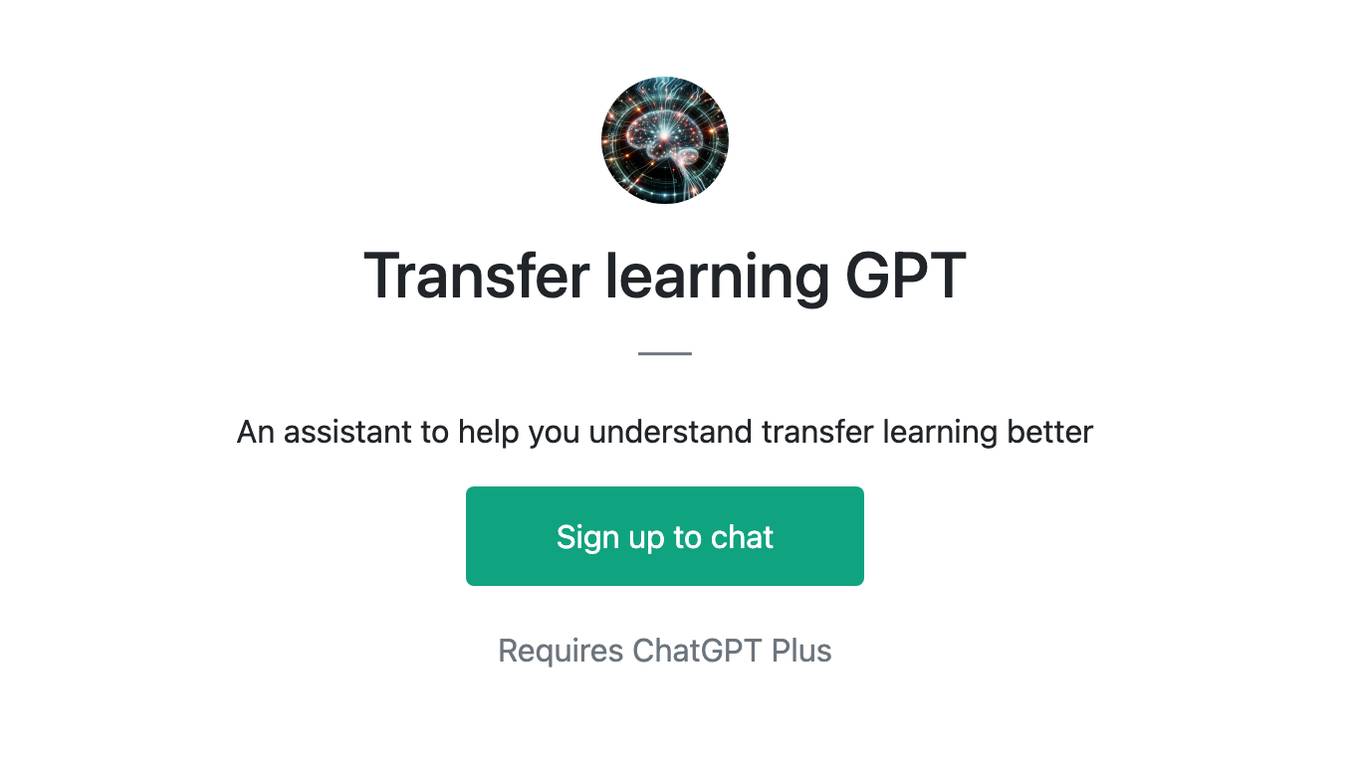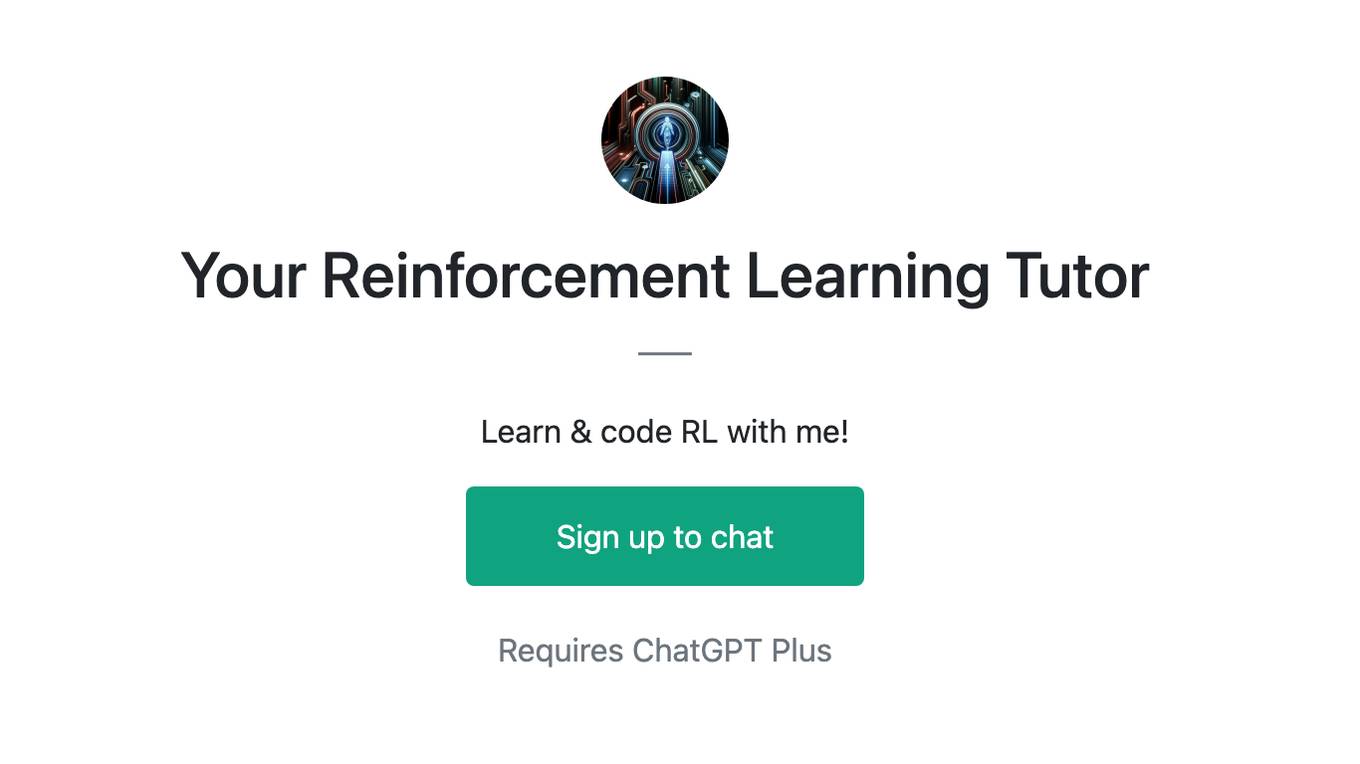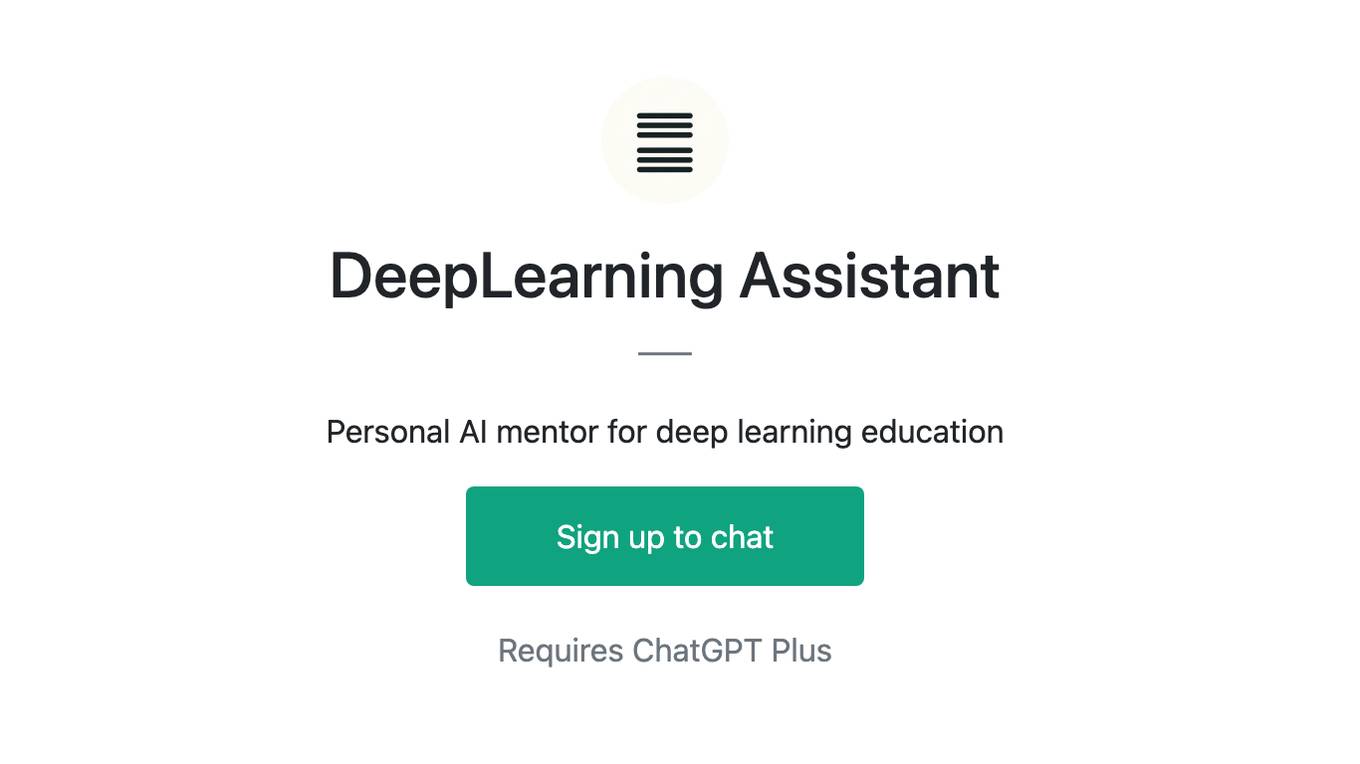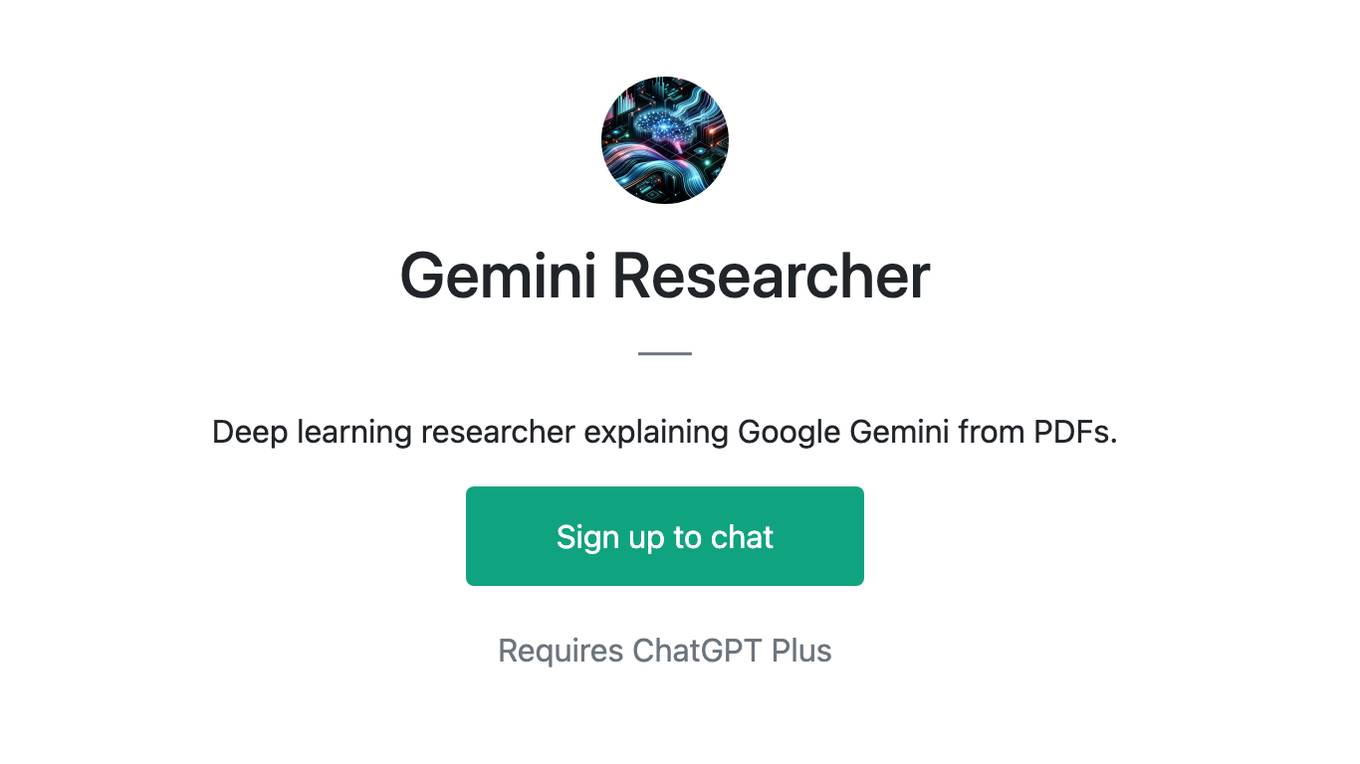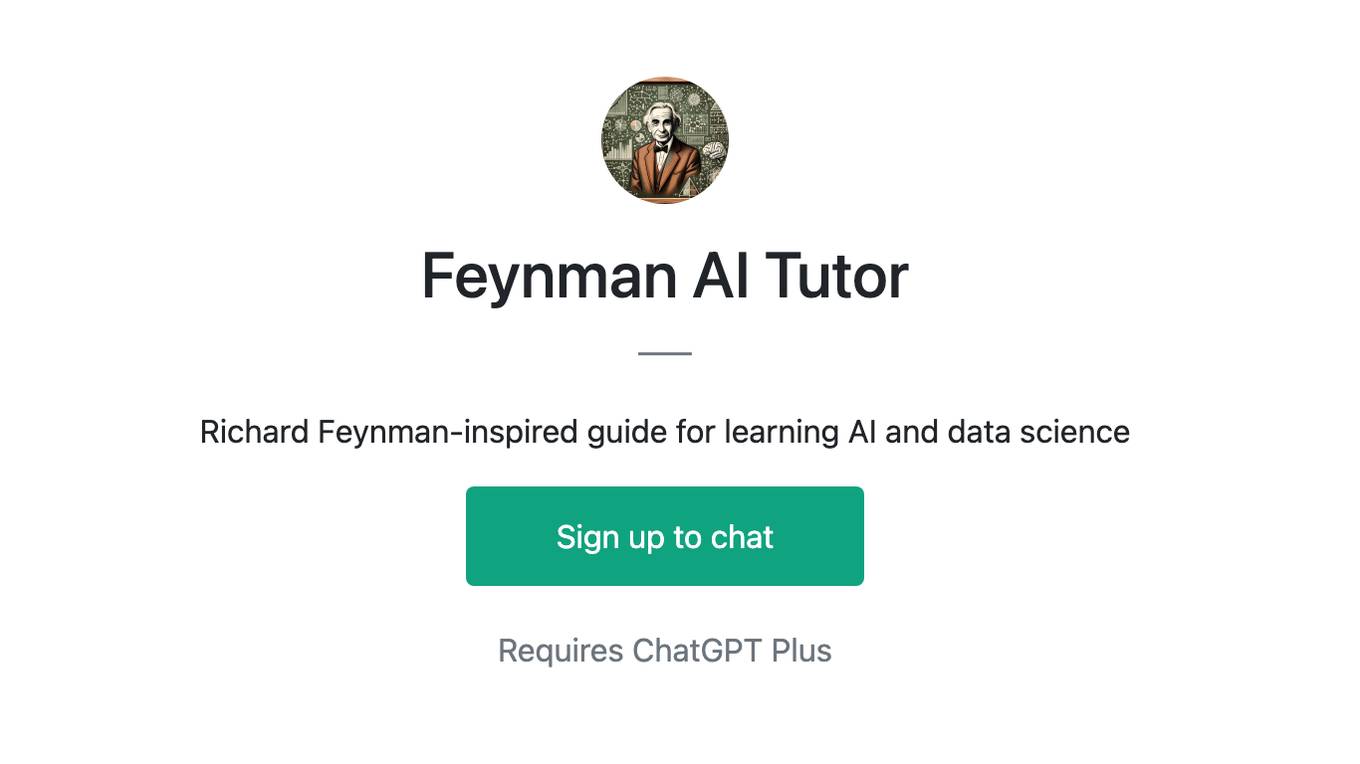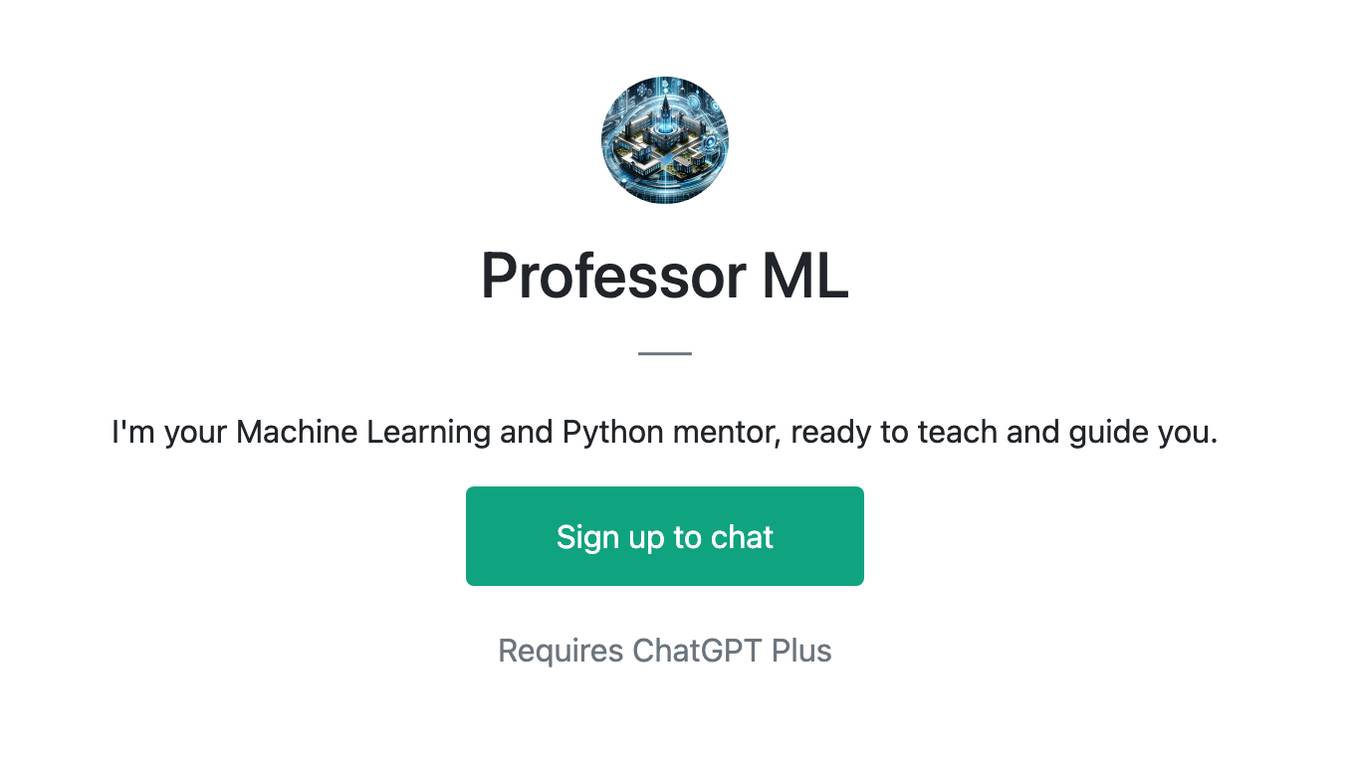Best AI tools for< Learning Scientist >
Infographic
20 - AI tool Sites
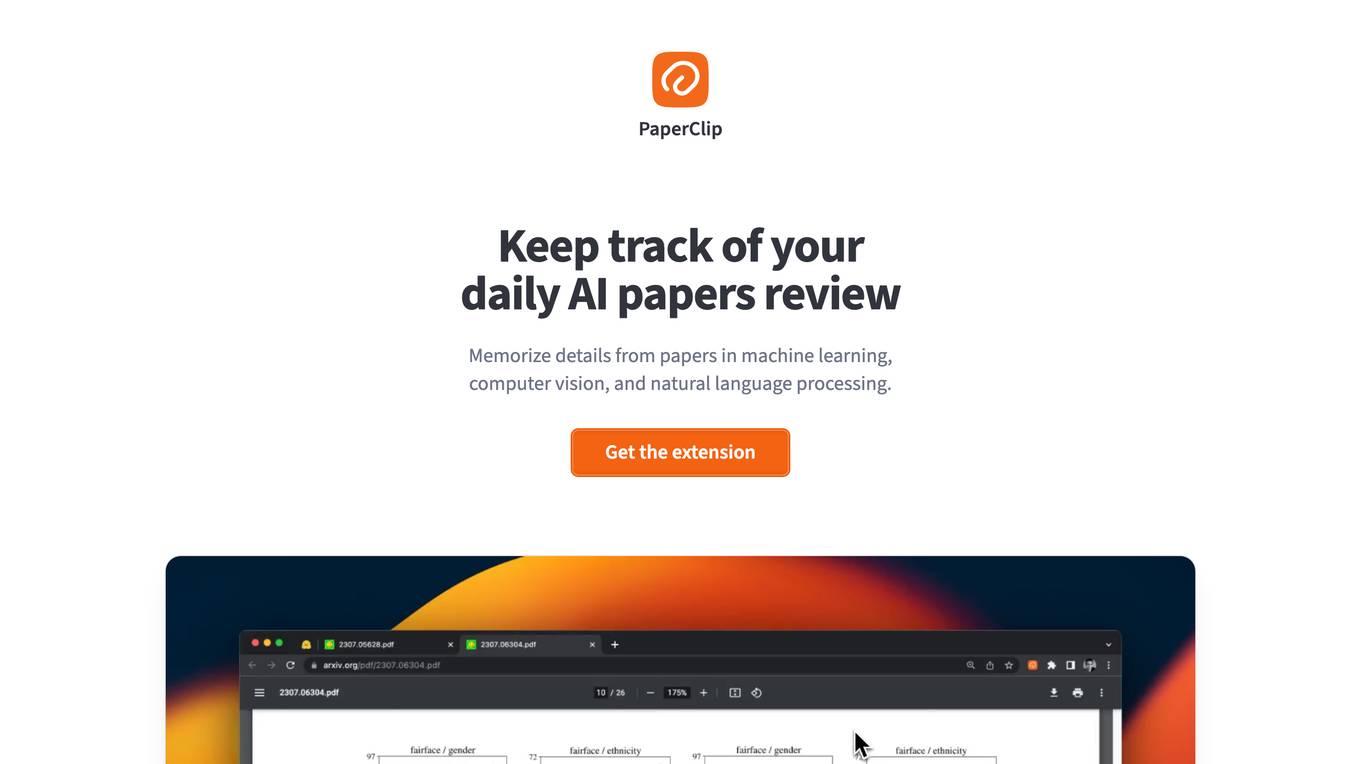
PaperClip
PaperClip is an AI tool designed to help users keep track of their daily AI papers review. It allows users to memorize details from papers in machine learning, computer vision, and natural language processing. The tool offers an extension to easily find back important findings from AI research papers, ML blog posts, and news. PaperClip's AI runs locally, ensuring data privacy by not sending any information to external servers. Users can save and index their findings locally, with offline support for searching even without an internet connection. The tool also provides the ability to clean data by resetting saved bits in one click.

Nuro
Nuro is an autonomous technology company focused on revolutionizing mobility through robotics and AI. They offer cutting-edge AI-first autonomy solutions for automotive and mobility applications, including robotaxis and autonomous vehicles. Nuro's state-of-the-art AV technology, Nuro Driver™, is designed to drive safely and naturally on all roads using groundbreaking AI-first autonomy. The company prioritizes safety in all aspects of its operations, from hardware and software to testing and systems engineering. With 8 years of autonomy innovation, Nuro aims to transform the way goods and people move by empowering fleets with AI-first autonomous capabilities.
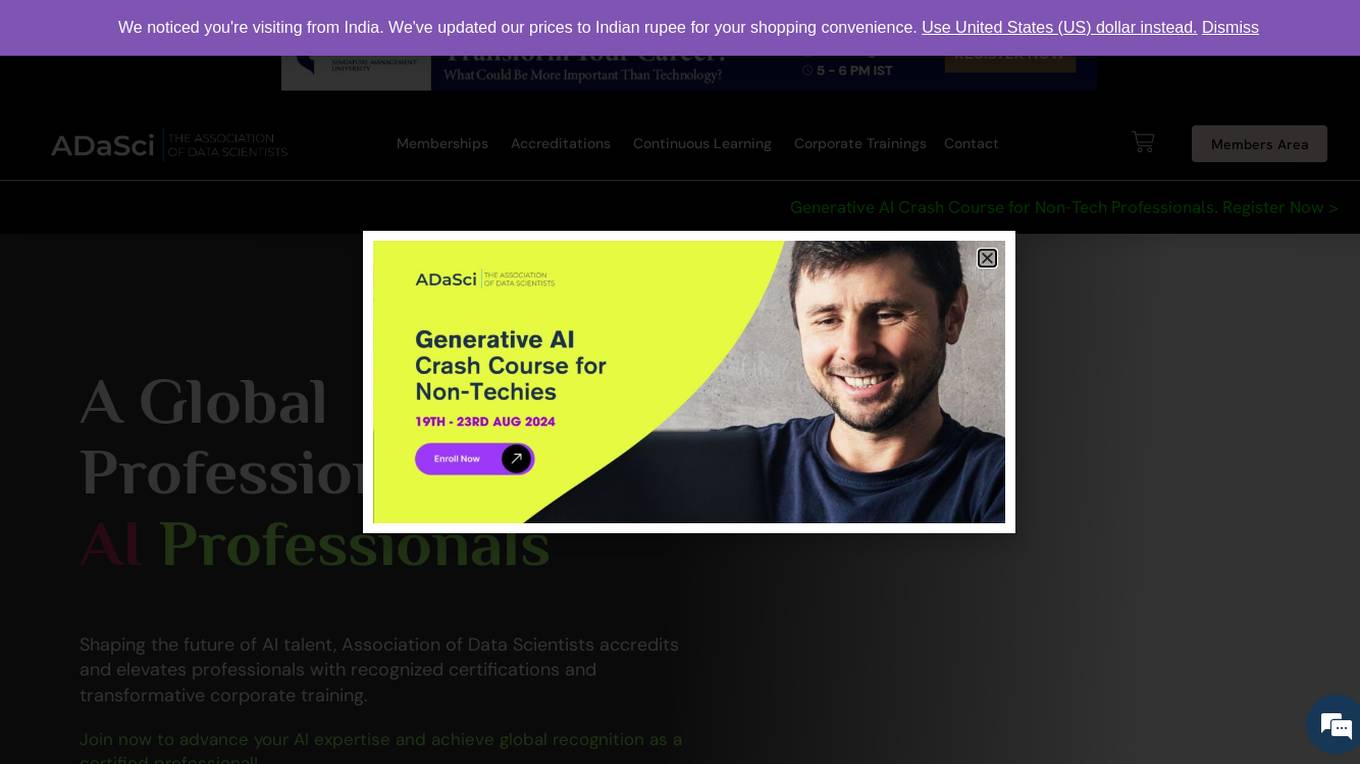
Association of Data Scientists
The Association of Data Scientists (ADaSci) is a global professional body of AI professionals that accredits and elevates professionals with recognized certifications and transformative corporate training. They offer memberships for individuals and corporations interested in the AI field, as well as accreditations like Chartered Data Scientist (CDS) and Certified Generative AI Engineer. The organization provides continuous learning opportunities through courses and corporate training programs on topics such as generative AI and knowledge graph solutions. ADaSci aims to shape the future of AI talent by advancing expertise and achieving global recognition as certified professionals.

Deep Learning
The Deep Learning textbook is a resource intended to help students and practitioners enter the field of machine learning in general and deep learning in particular. The online version of the book is now complete and will remain available online for free. The deep learning textbook can now be ordered on Amazon. For up to date announcements, join our mailing list.
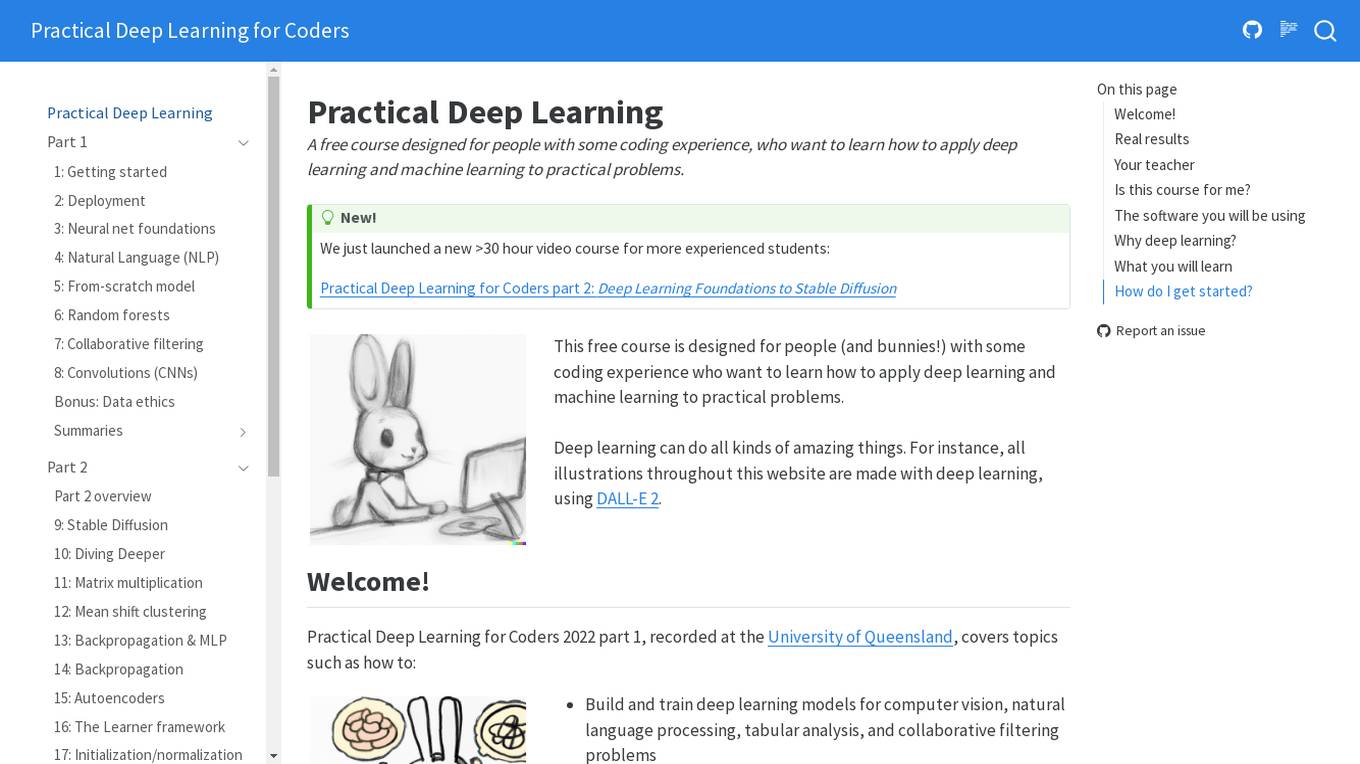
Practical Deep Learning for Coders
Practical Deep Learning for Coders is a free course designed for individuals with some coding experience who want to learn how to apply deep learning and machine learning to practical problems. The course covers topics such as building and training deep learning models for computer vision, natural language processing, tabular analysis, and collaborative filtering problems. It is based on a 5-star rated book and does not require any special hardware or software. The course is led by Jeremy Howard, a renowned expert in machine learning and the President and Chief Scientist of Kaggle.

Great Learning
Great Learning is an online platform offering a wide range of courses, PG certificates, and degree programs in various domains such as AI & Machine Learning, Data Science, Business Analytics, Cloud Computing, Cyber Security, Software Development, Digital Marketing, Design, MBA, and Masters. The platform provides opportunities to learn from top universities, offers career support, success stories, and enterprise solutions. With a focus on AI and Machine Learning, Great Learning aims to elevate expertise and provide transformative programs to help individuals enhance their skills and advance their careers.
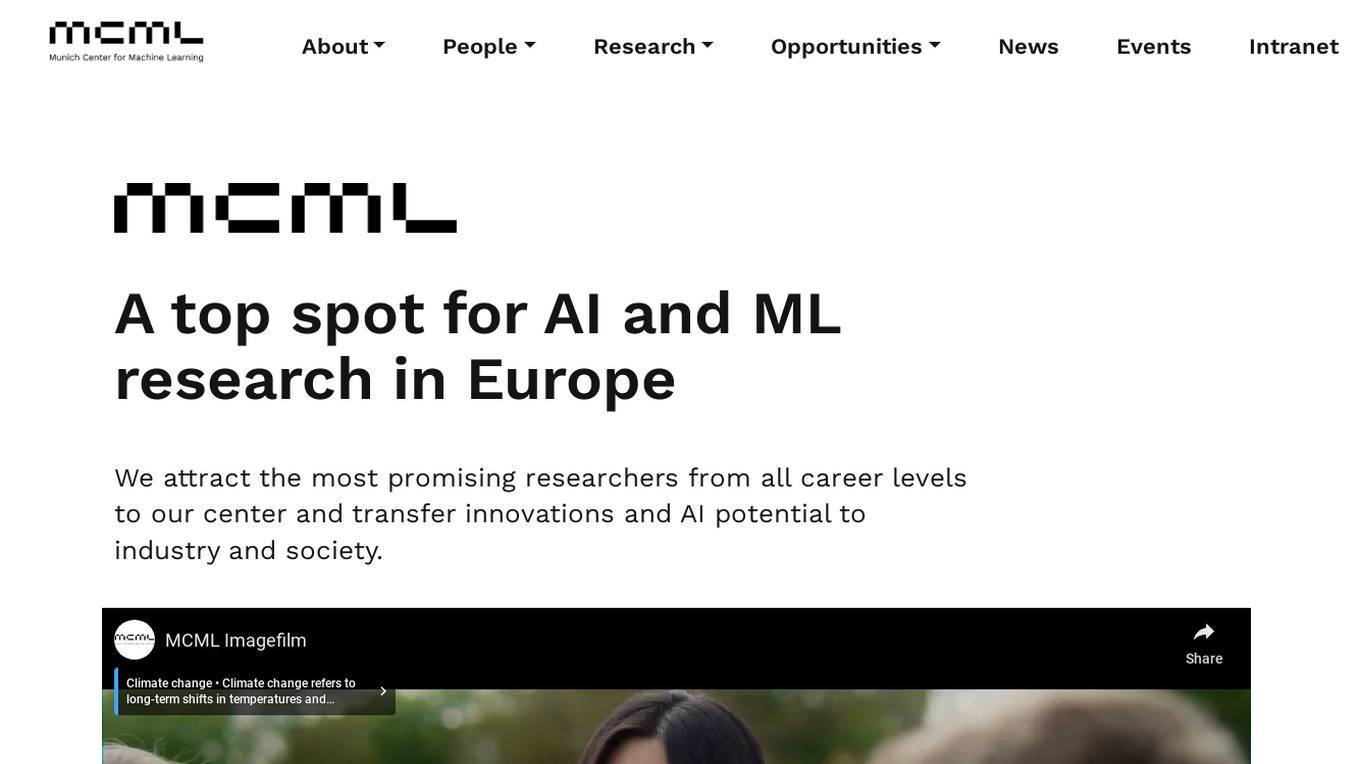
Munich Center for Machine Learning
The Munich Center for Machine Learning (MCML) is a top spot for AI and ML research in Europe. It is one of six national AI Competence Centers funded by the German and Bavarian government's AI strategy. MCML brings together leading ML researchers from LMU, TUM, and associated institutions to transfer innovations and AI potential to industry and society. The center's vision is to unite leading researchers in Germany to strengthen competence in ML and AI at international, national, and regional levels, fostering talent and making potential accessible to users from various sectors.
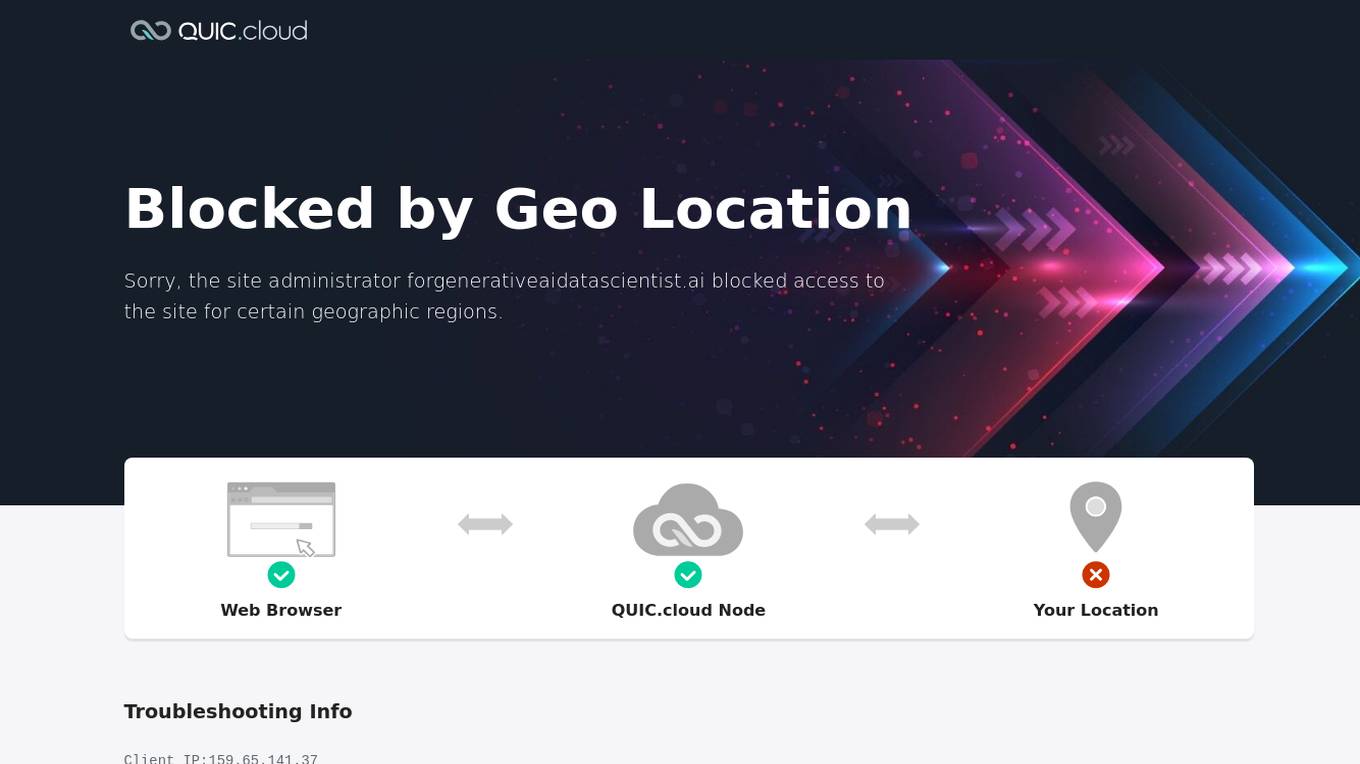
Generative Aid Data Scientist
Generative Aid Data Scientist is an AI tool designed to assist data scientists in generating insights and analysis from complex datasets. It utilizes advanced algorithms and machine learning techniques to provide valuable recommendations and predictions for data-driven decision-making. The tool offers a user-friendly interface that allows data scientists to input their data and receive actionable results in a timely manner. With its powerful capabilities, Generative Aid Data Scientist streamlines the data analysis process and enhances the efficiency of data-driven projects.
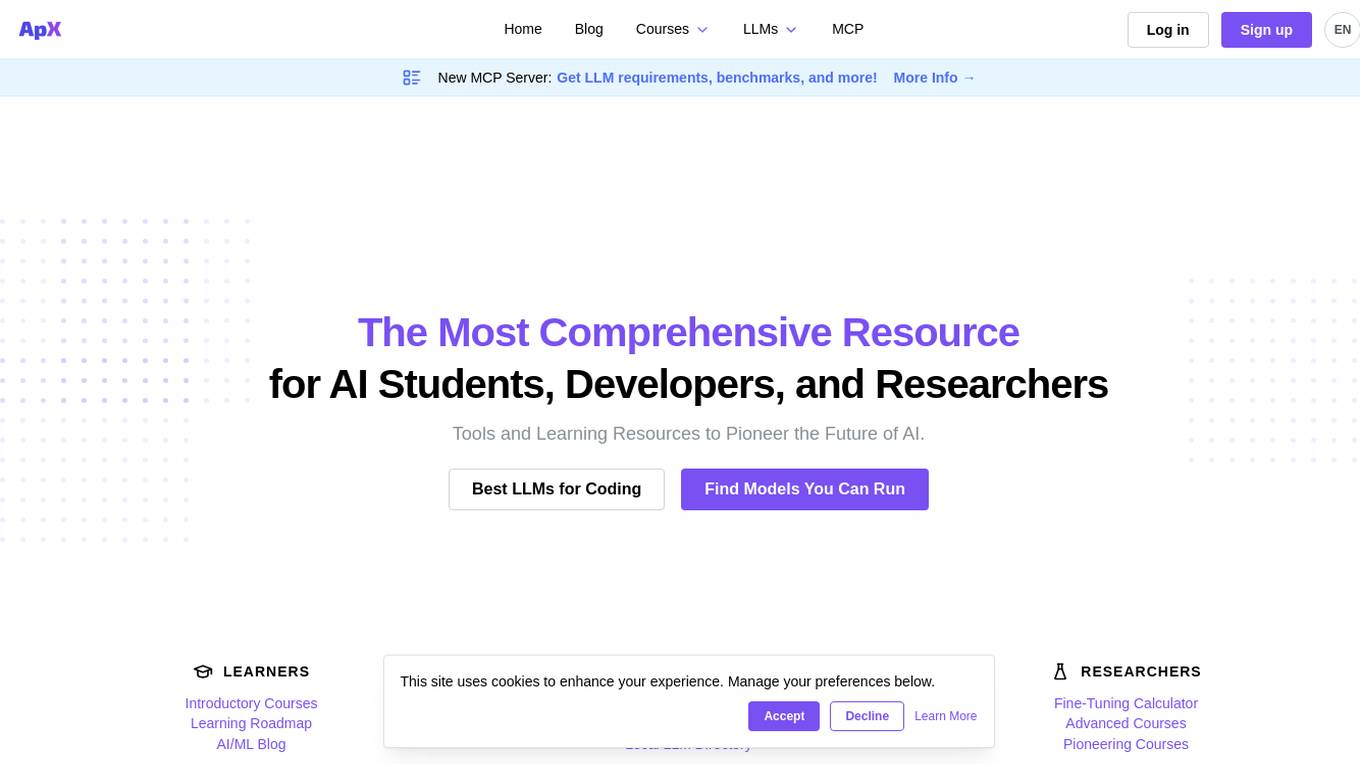
ApX Machine Learning
ApX Machine Learning is a comprehensive resource for AI students, developers, and researchers, offering tools and learning resources to pioneer the future of AI. It provides a wide range of courses, tools, and benchmarks for learners, developers, and researchers in the field of machine learning and artificial intelligence. The platform aims to enhance the capabilities of existing large language models (LLMs) through the Model Context Protocol (MCP), providing access to resources, benchmarks, and tools to improve LLM performance and efficiency.
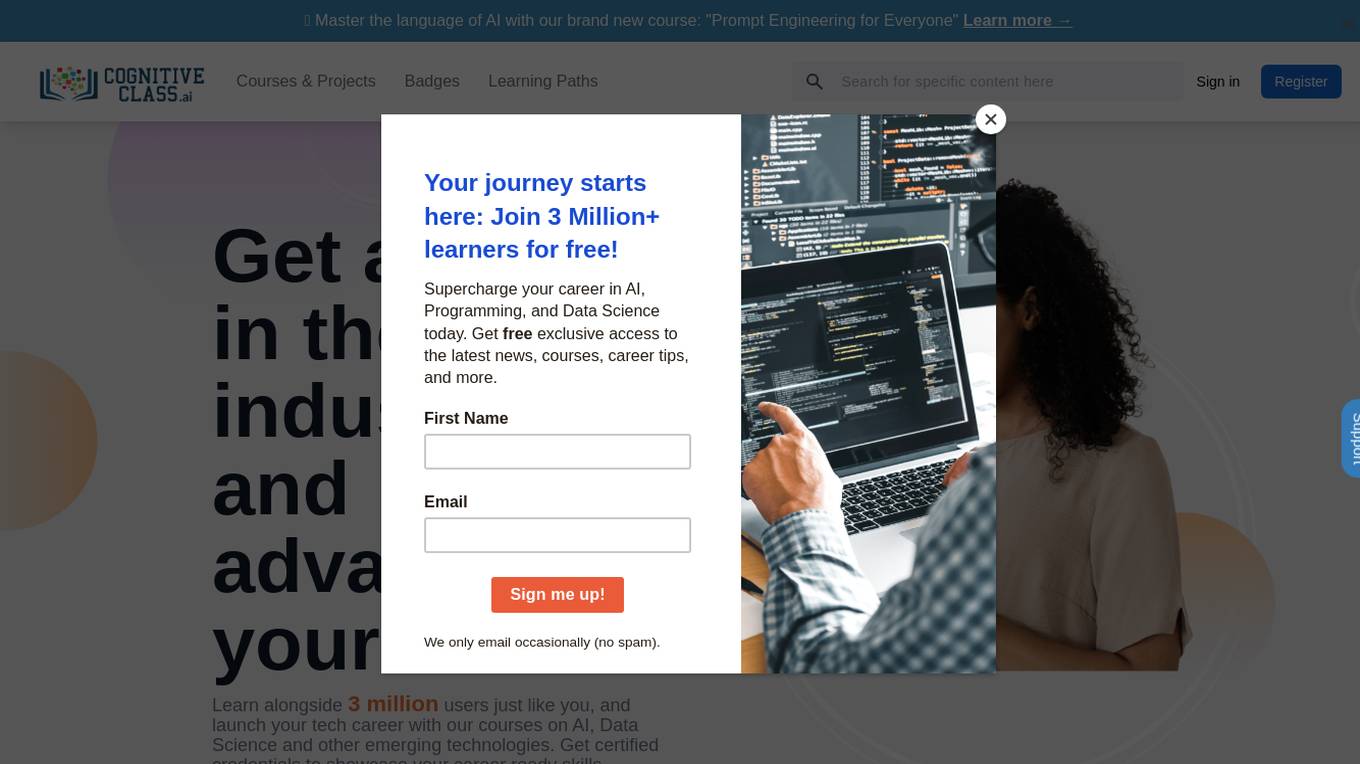
AI Learning Platform
The website offers a brand new course titled 'Prompt Engineering for Everyone' to help users master the language of AI. With over 100 courses and 20+ learning paths, users can learn AI, Data Science, and other emerging technologies. The platform provides hands-on content designed by expert instructors, allowing users to gain practical, industry-relevant knowledge and skills. Users can earn certificates to showcase their expertise and build projects to demonstrate their skills. Trusted by 3 million learners globally, the platform offers a community of learners with a proven track record of success.
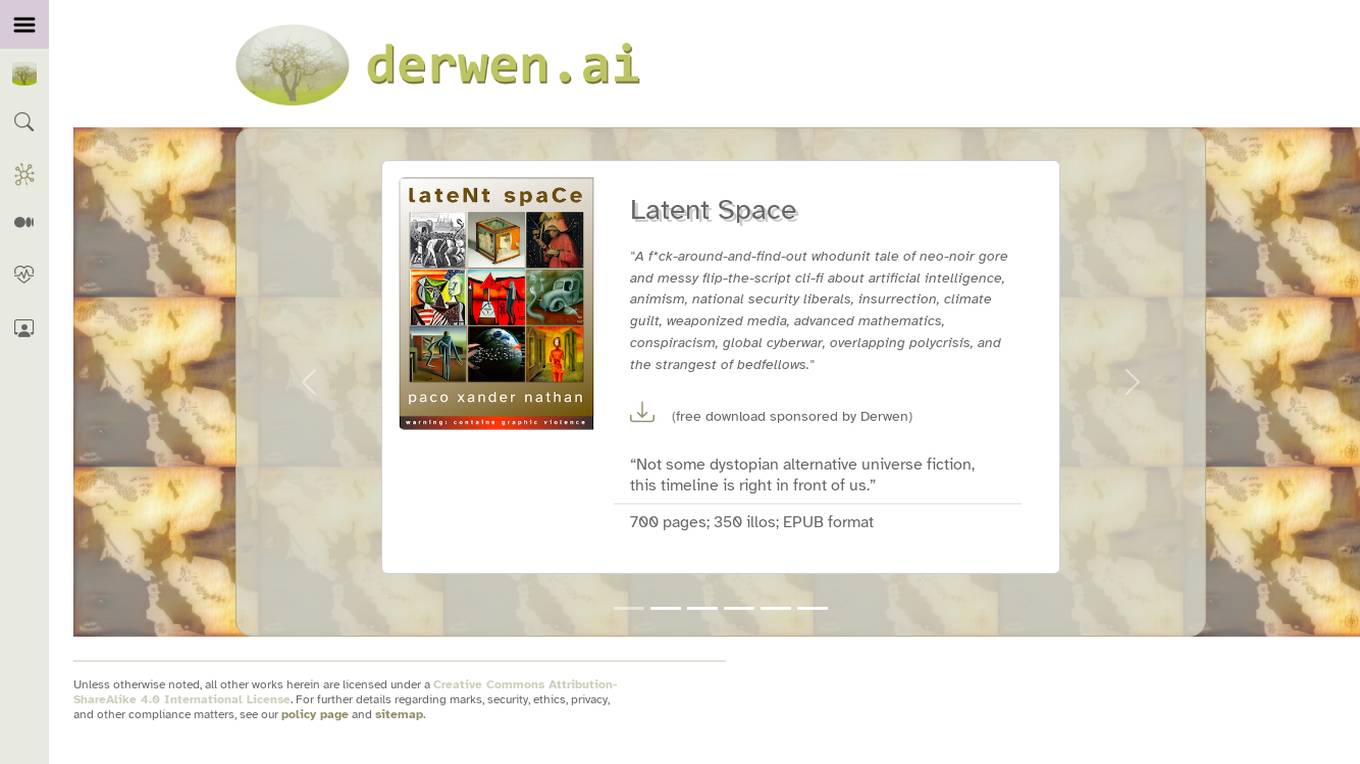
Derwen
Derwen is an open-source integration platform for production machine learning in enterprise, specializing in natural language processing, graph technologies, and decision support. It offers expertise in developing knowledge graph applications and domain-specific authoring. Derwen collaborates closely with Hugging Face and provides strong data privacy guarantees, low carbon footprint, and no cloud vendor involvement. The platform aims to empower AI engineers and domain experts with quality, time-to-value, and ownership since 2017.
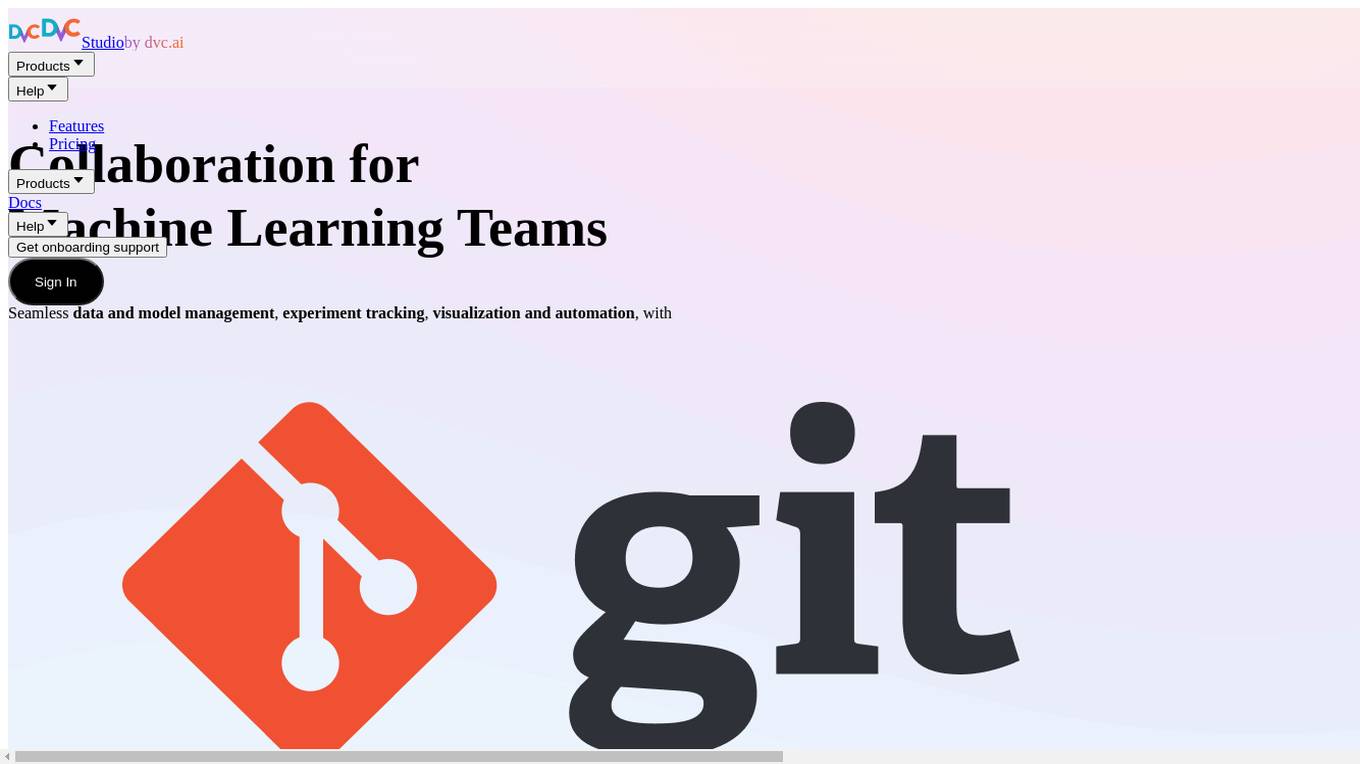
DVC Studio
DVC Studio is a collaboration tool for machine learning teams. It provides seamless data and model management, experiment tracking, visualization, and automation. DVC Studio is built for ML researchers, practitioners, and managers. It enables model organization and discovery across all ML projects and manages model lifecycle with Git, unifying ML projects with the best DevOps practices. DVC Studio also provides ML experiment tracking, visualization, collaboration, and automation using Git. It applies software engineering and DevOps best-practices to automate ML bookkeeping and model training, enabling easy collaboration and faster iterations.
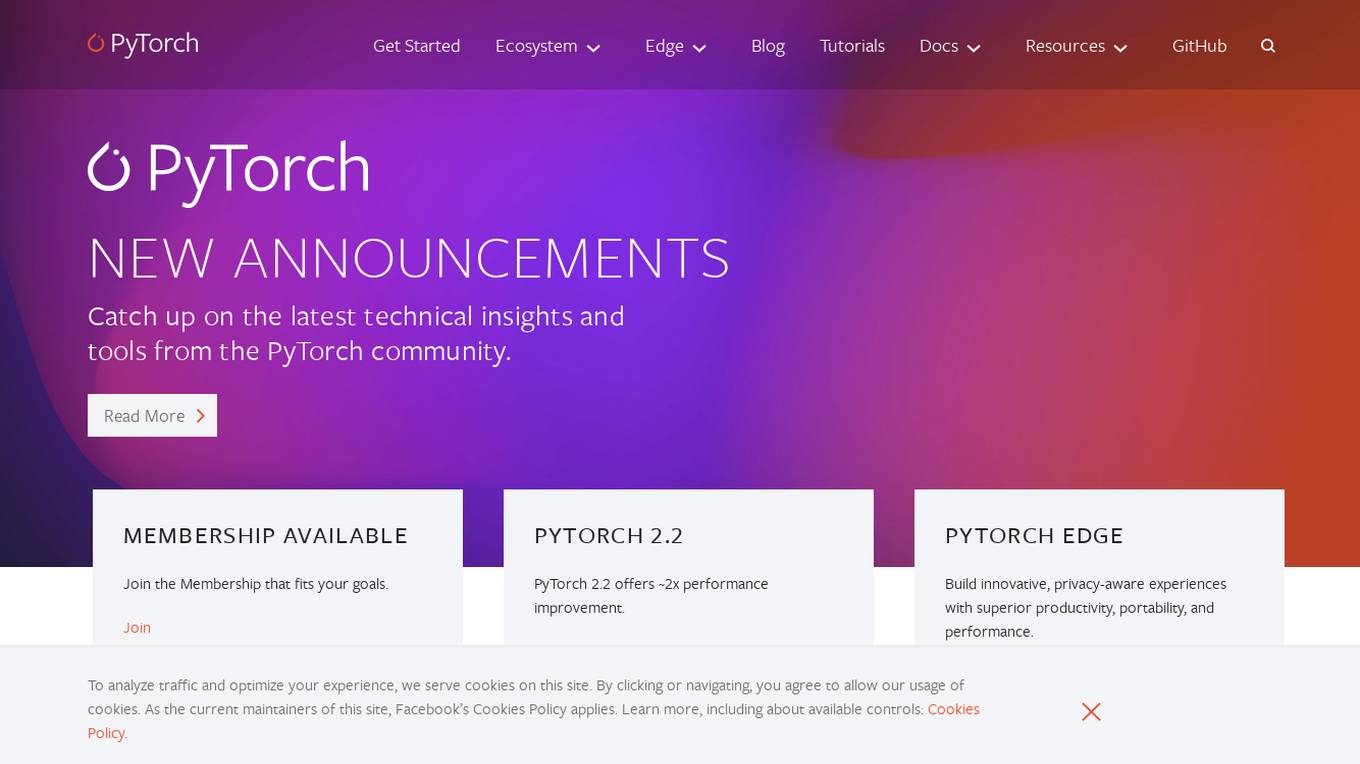
PyTorch
PyTorch is an open-source machine learning library based on the Torch library. It is used for applications such as computer vision, natural language processing, and reinforcement learning. PyTorch is known for its flexibility and ease of use, making it a popular choice for researchers and developers in the field of artificial intelligence.
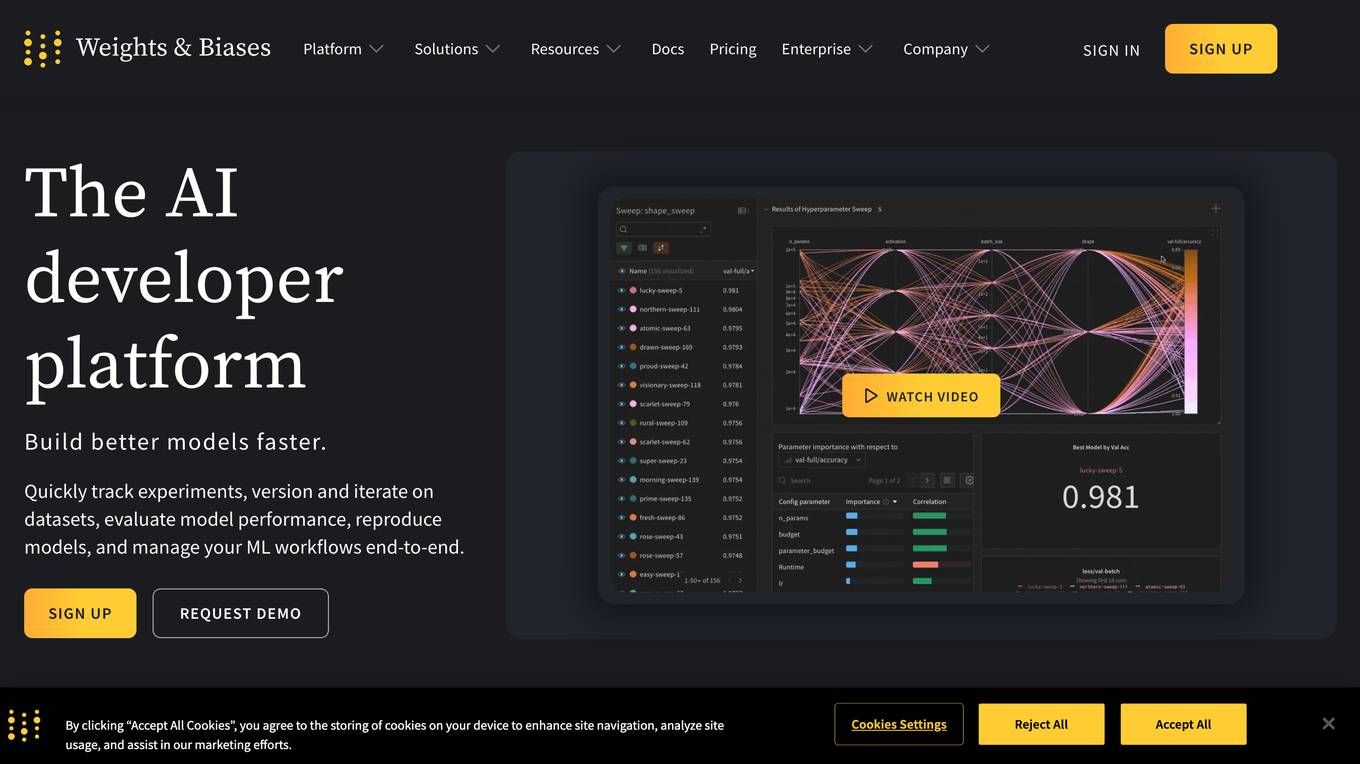
Weights & Biases
Weights & Biases is a machine learning platform that helps data scientists and engineers build, train, and deploy machine learning models. It provides a central location to track and manage all of your machine learning projects, and it offers a variety of tools to help you collaborate with others and share your work.

xAI Grok
xAI Grok is a visual analytics platform that helps users understand and interpret machine learning models. It provides a variety of tools for visualizing and exploring model data, including interactive charts, graphs, and tables. xAI Grok also includes a library of pre-built visualizations that can be used to quickly get started with model analysis.

TensorFlow
TensorFlow is an end-to-end platform for machine learning. It provides a wide range of tools and resources to help developers build, train, and deploy ML models. TensorFlow is used by researchers and developers all over the world to solve real-world problems in a variety of domains, including computer vision, natural language processing, and robotics.
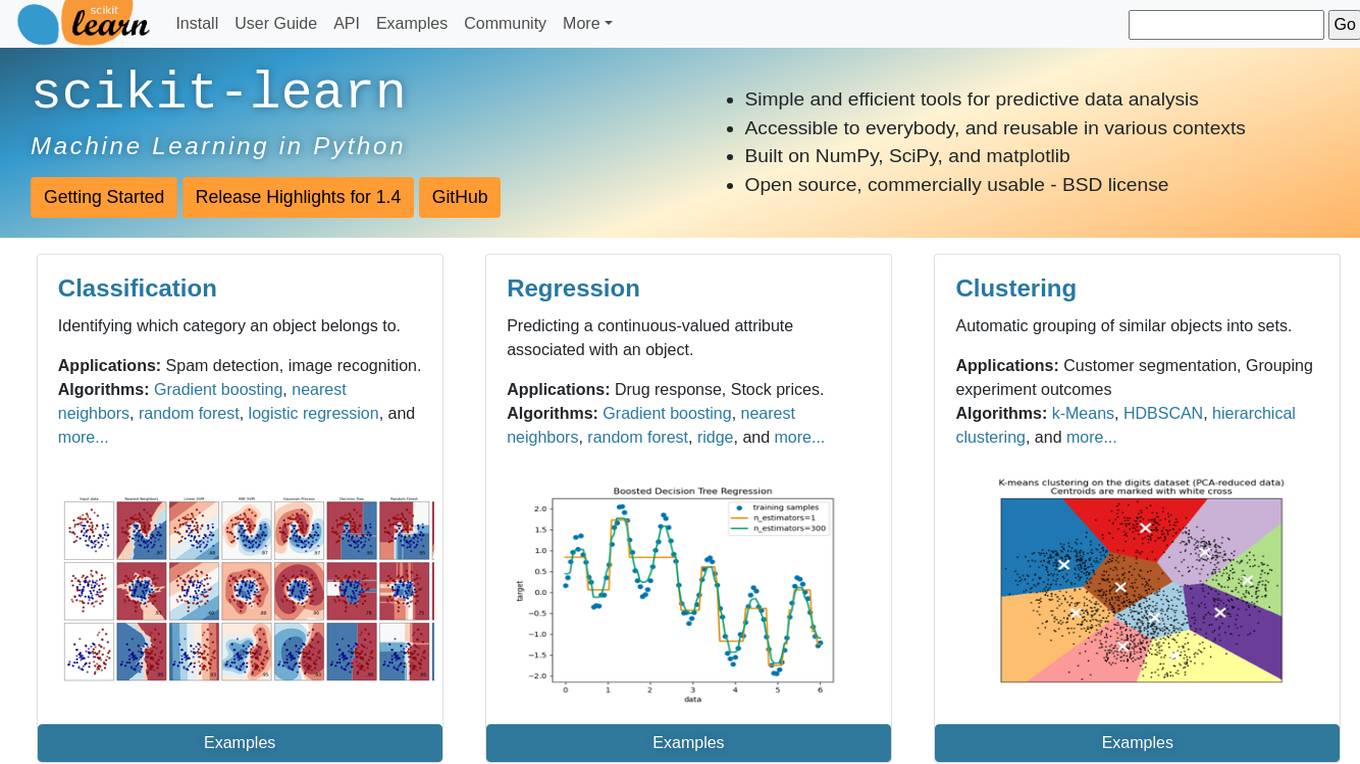
scikit-learn
Scikit-learn is a free software machine learning library for the Python programming language. It features various classification, regression and clustering algorithms including support vector machines, random forests, gradient boosting, k-means and DBSCAN, and is designed to interoperate with the Python numerical and scientific libraries NumPy and SciPy.
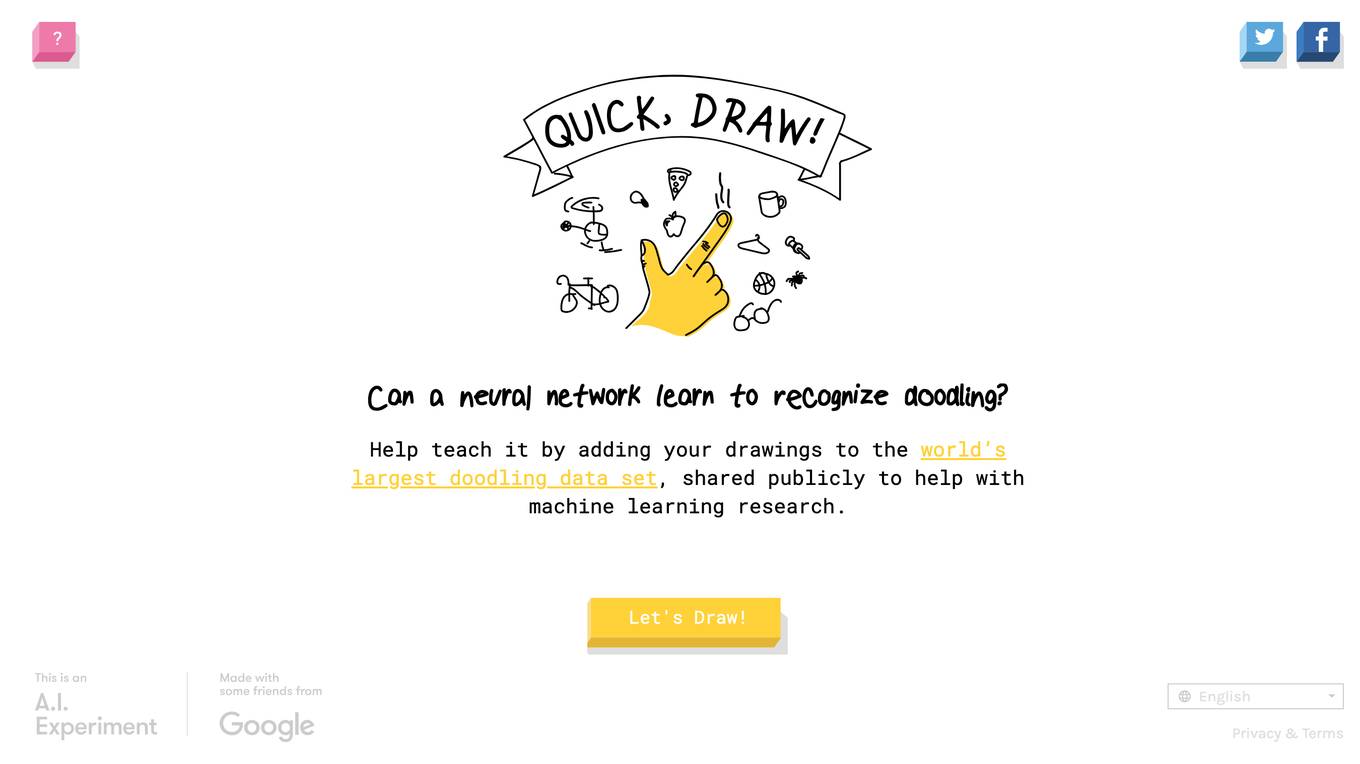
Quick, Draw!
Quick, Draw! is a game built with machine learning. You draw, and a neural network tries to guess what you're drawing. Of course, it doesn't always work. But the more you play with it, the more it will learn. So far we have trained it on a few hundred concepts, and we hope to add more over time. We made this as an example of how you can use machine learning in fun ways.
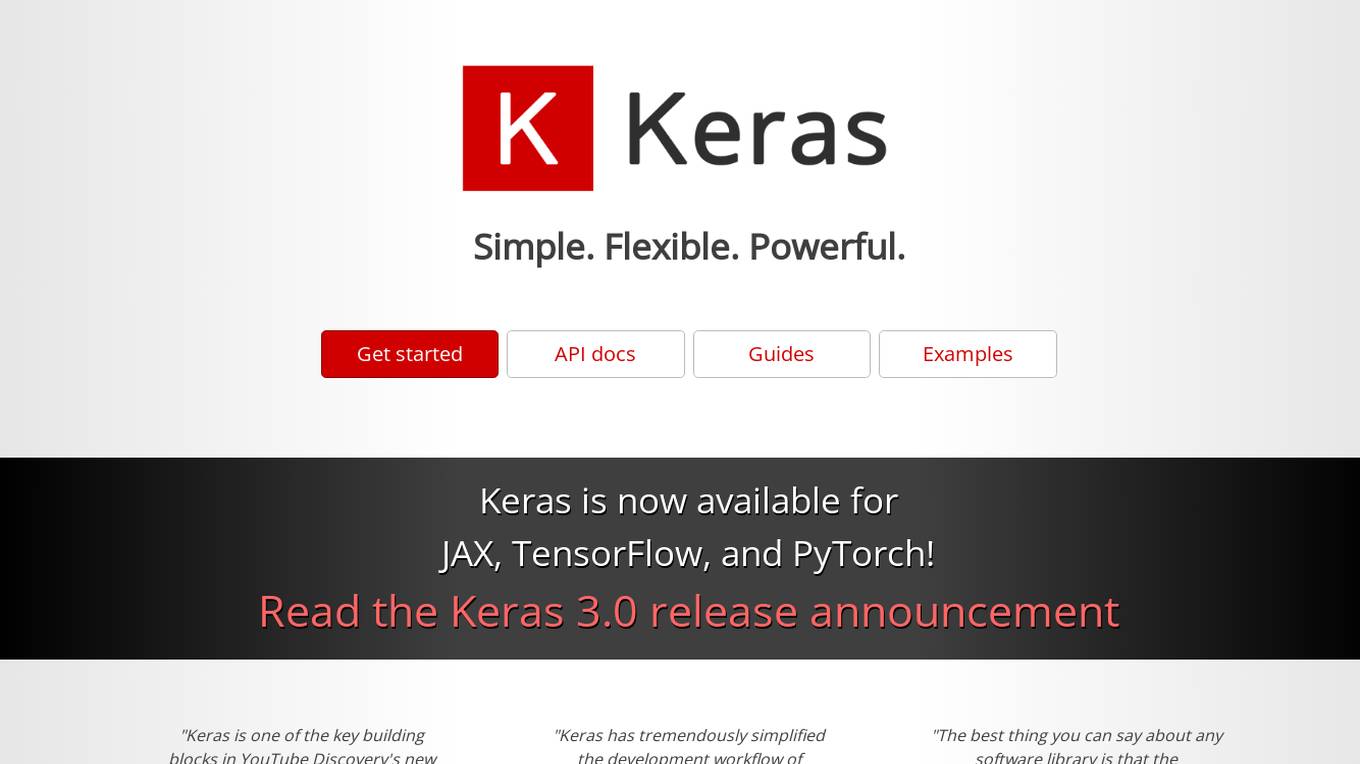
Keras
Keras is an open-source deep learning API written in Python, designed to make building and training deep learning models easier. It provides a user-friendly interface and a wide range of features and tools to help developers create and deploy machine learning applications. Keras is compatible with multiple frameworks, including TensorFlow, Theano, and CNTK, and can be used for a variety of tasks, including image classification, natural language processing, and time series analysis.
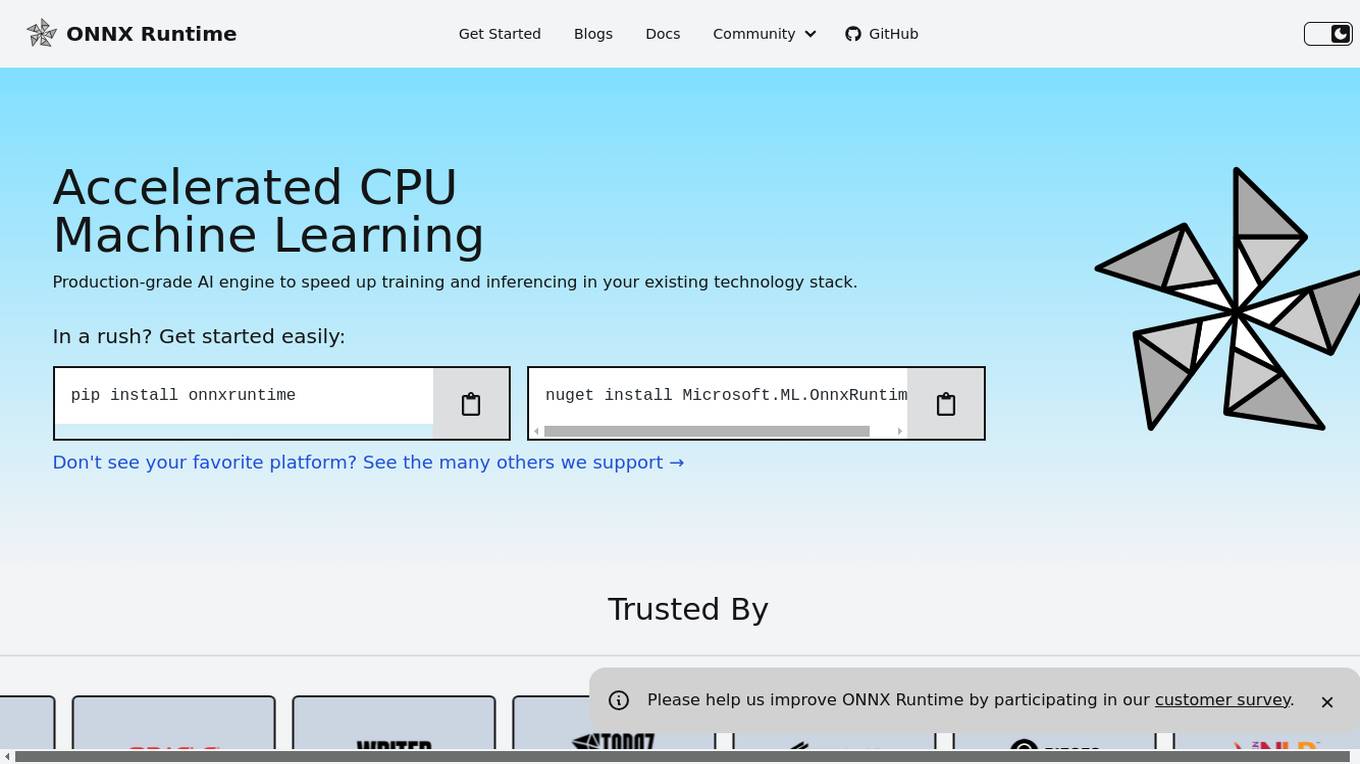
ONNX Runtime
ONNX Runtime is a production-grade AI engine designed to accelerate machine learning training and inferencing in various technology stacks. It supports multiple languages and platforms, optimizing performance for CPU, GPU, and NPU hardware. ONNX Runtime powers AI in Microsoft products and is widely used in cloud, edge, web, and mobile applications. It also enables large model training and on-device training, offering state-of-the-art models for tasks like image synthesis and text generation.
0 - Open Source Tools
20 - OpenAI Gpts
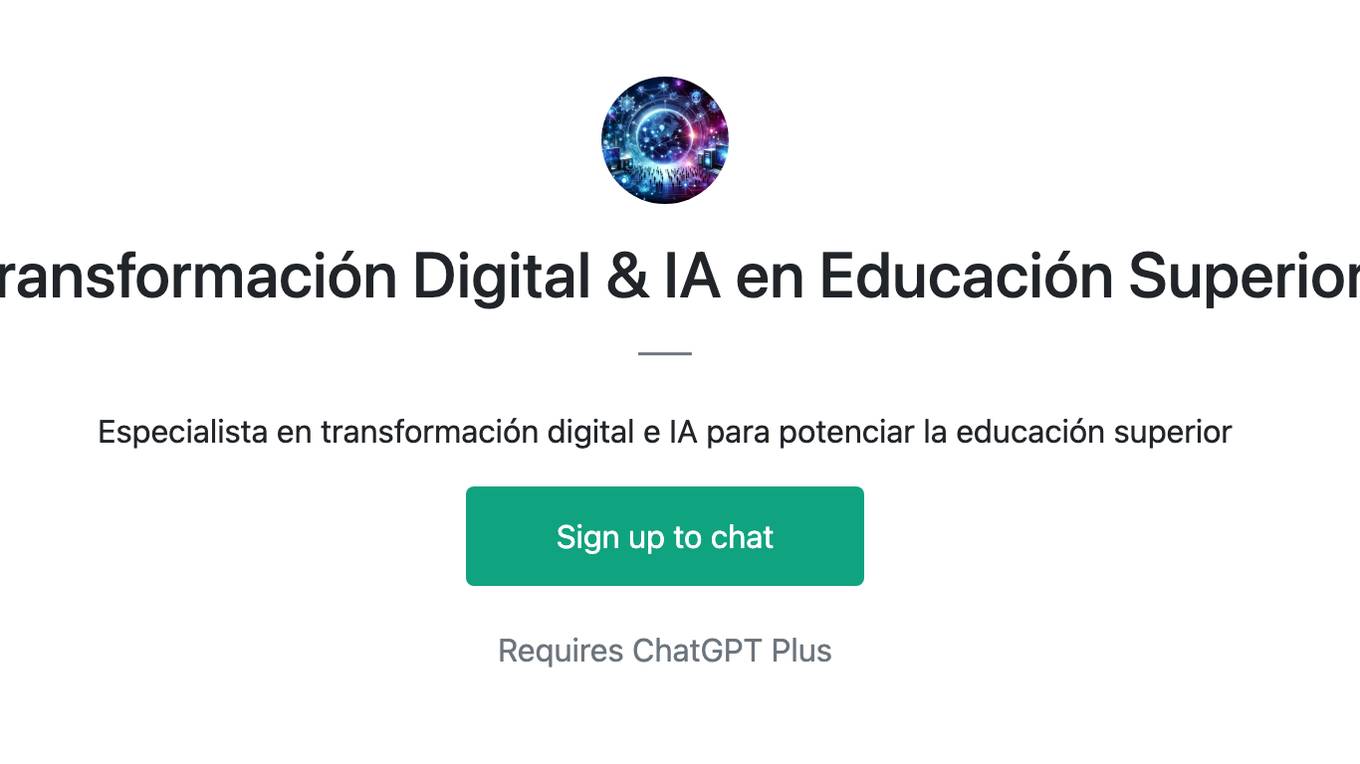
Transformación Digital & IA en Educación Superior
Especialista en transformación digital e IA para potenciar la educación superior
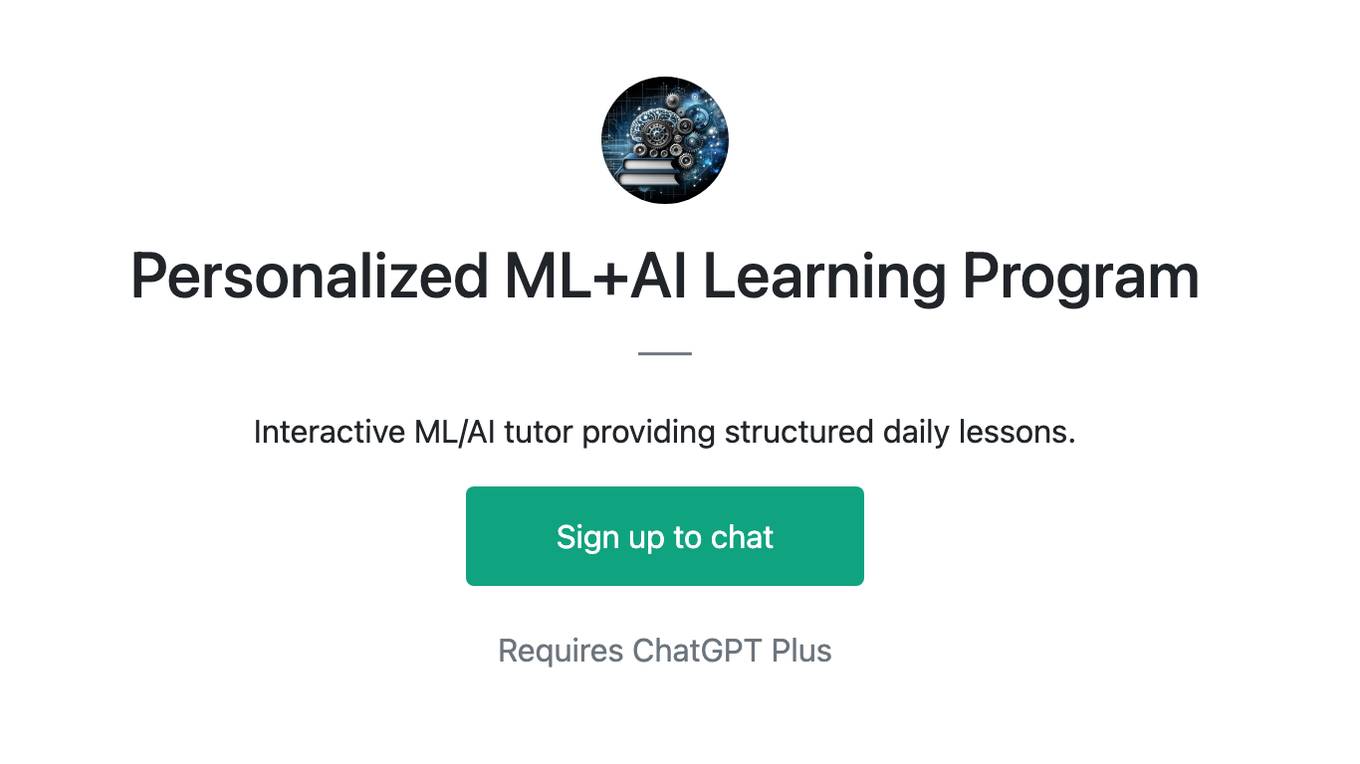
Personalized ML+AI Learning Program
Interactive ML/AI tutor providing structured daily lessons.
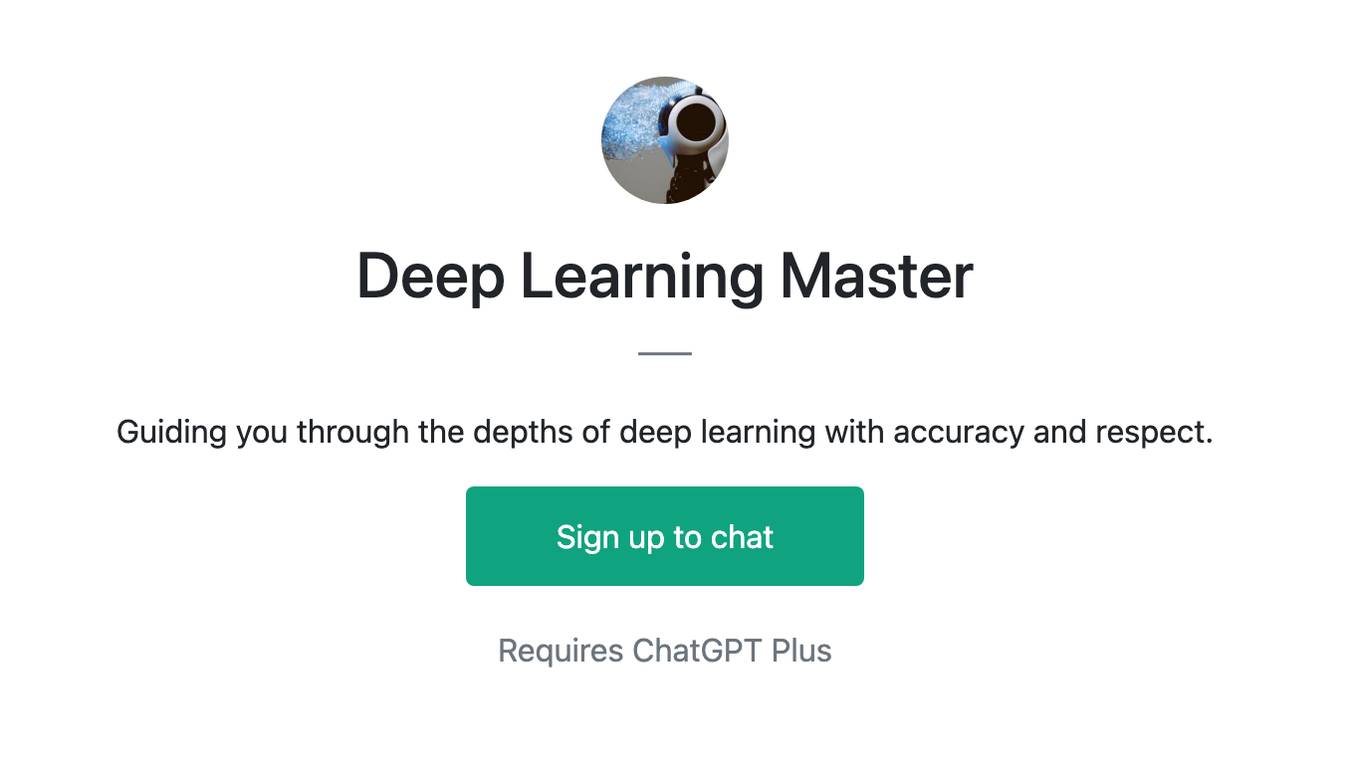
Deep Learning Master
Guiding you through the depths of deep learning with accuracy and respect.
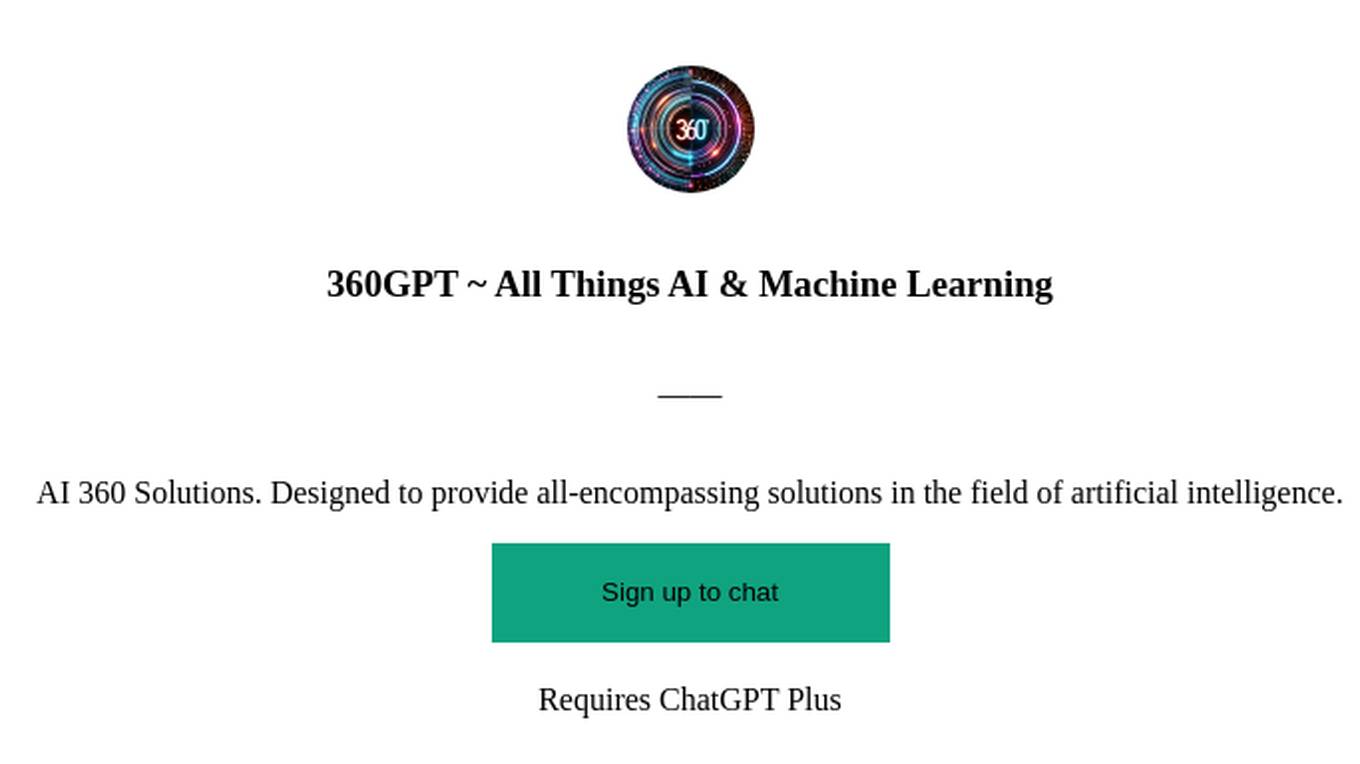
360GPT ~ All Things AI & Machine Learning
AI 360 Solutions. Designed to provide all-encompassing solutions in the field of artificial intelligence.
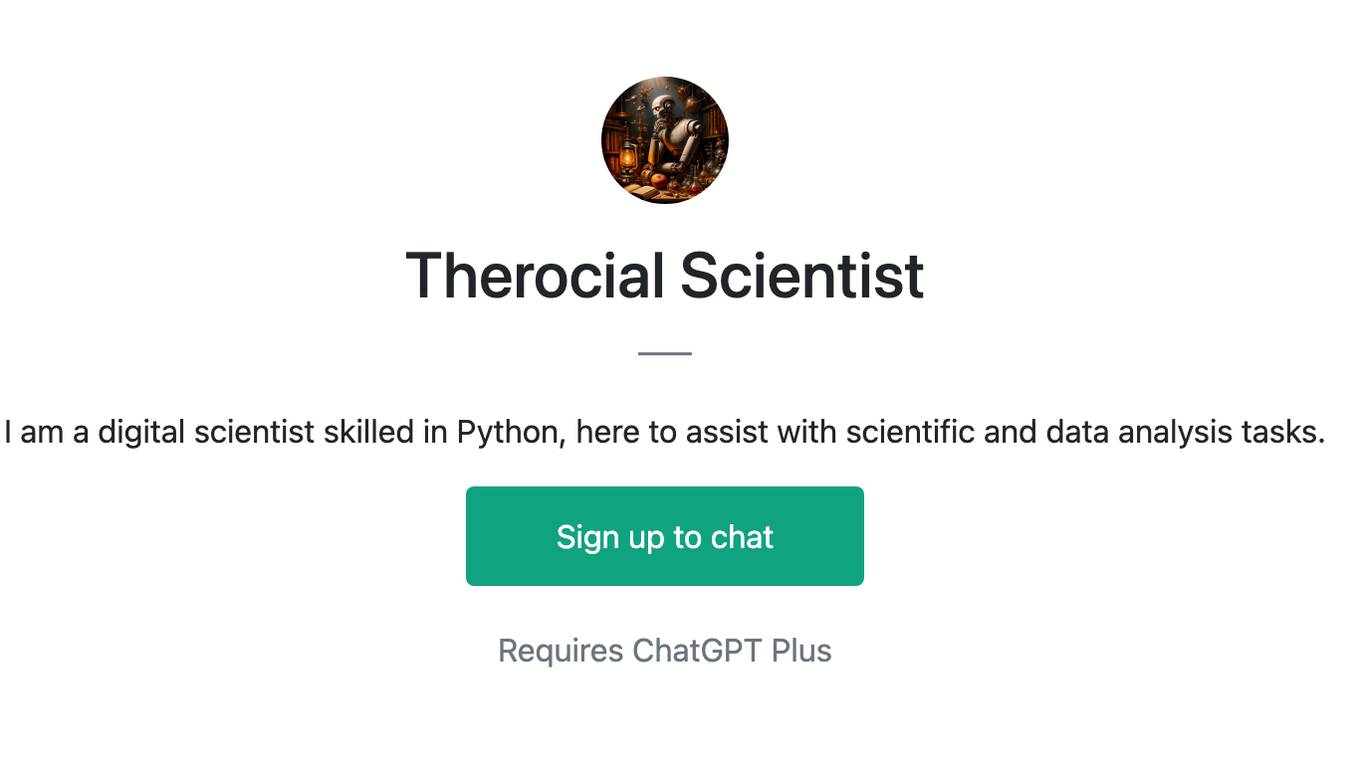
Therocial Scientist
I am a digital scientist skilled in Python, here to assist with scientific and data analysis tasks.
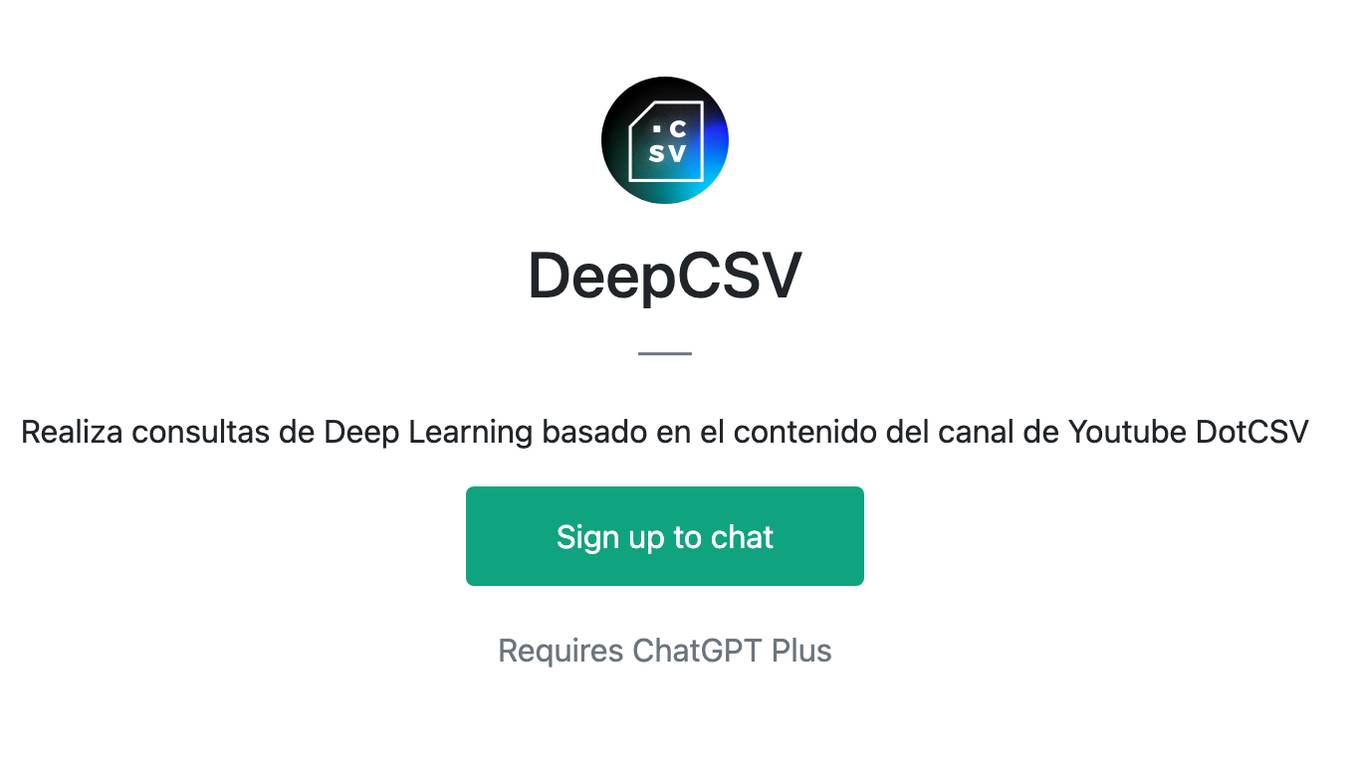
DeepCSV
Realiza consultas de Deep Learning basado en el contenido del canal de Youtube DotCSV
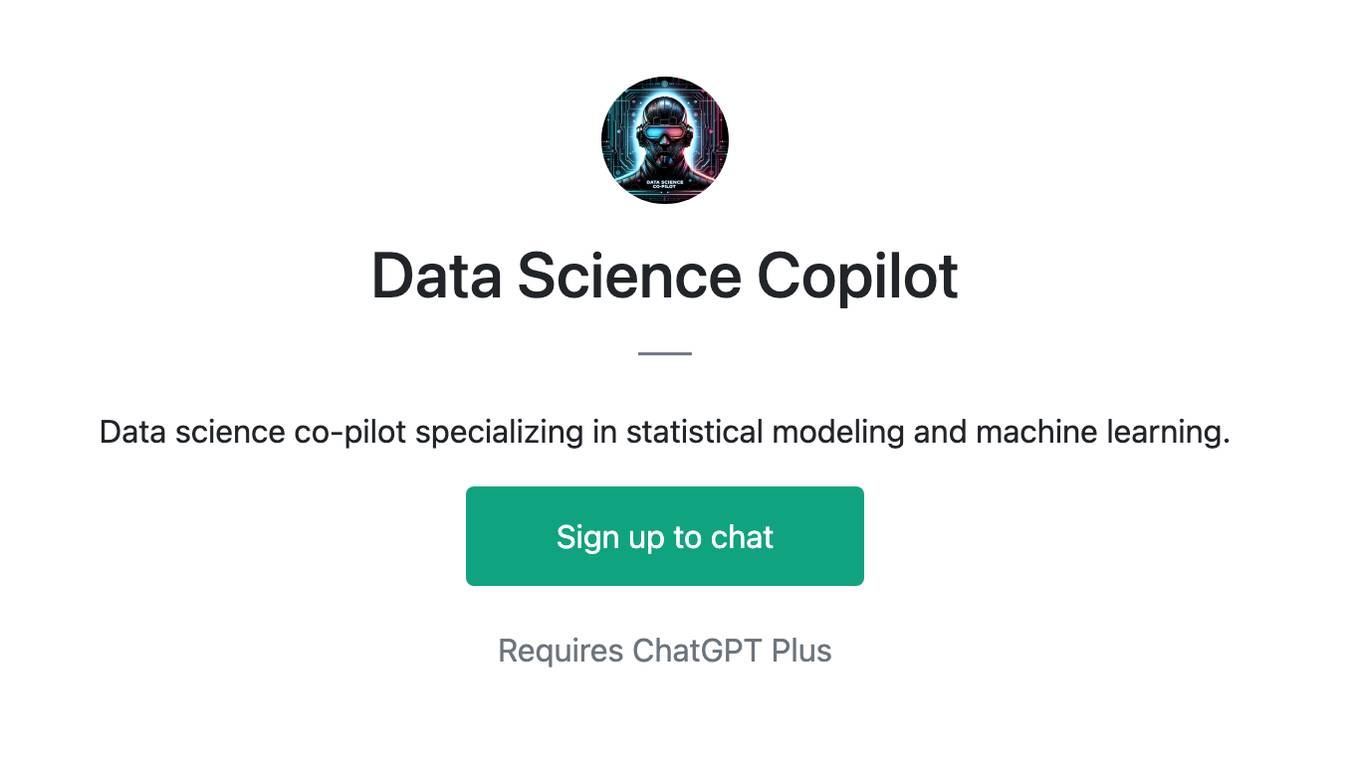
Data Science Copilot
Data science co-pilot specializing in statistical modeling and machine learning.
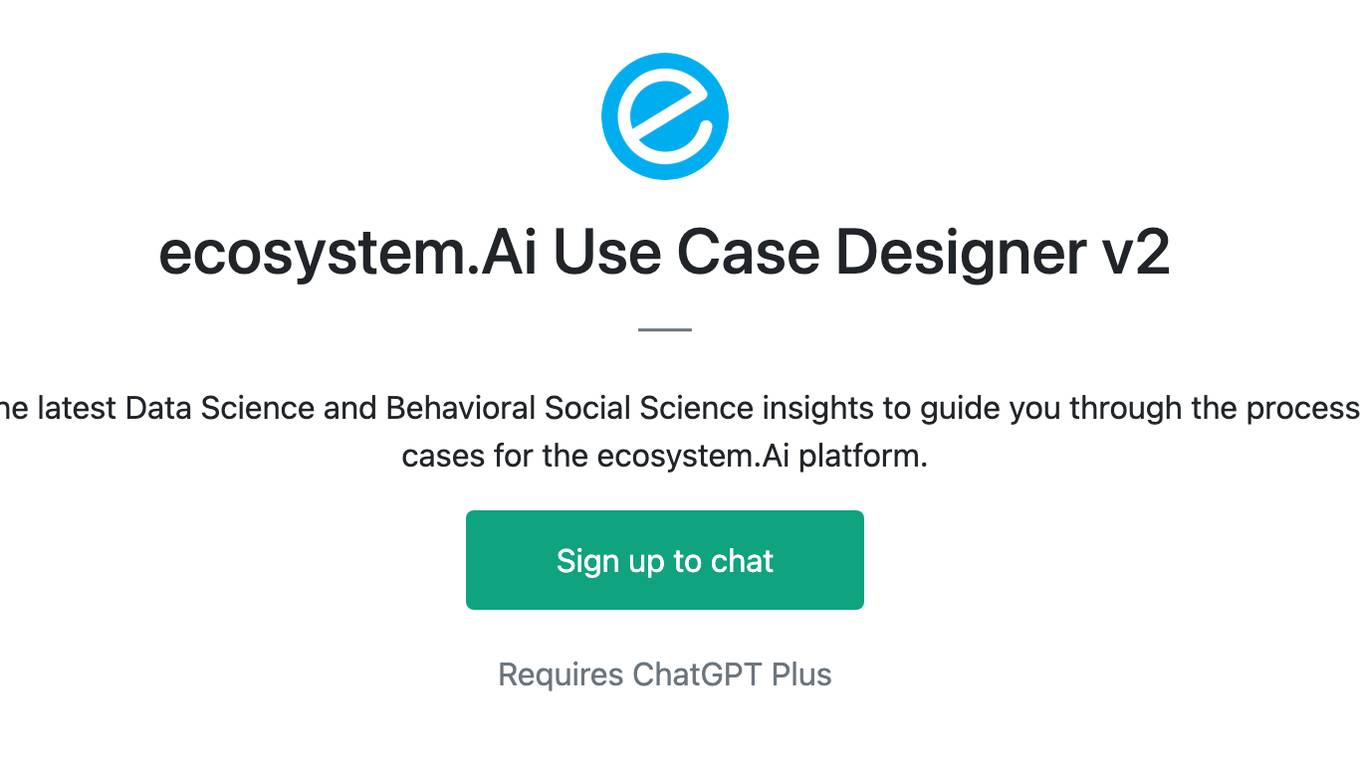
ecosystem.Ai Use Case Designer v2
The use case designer is configured with the latest Data Science and Behavioral Social Science insights to guide you through the process of defining AI and Machine Learning use cases for the ecosystem.Ai platform.
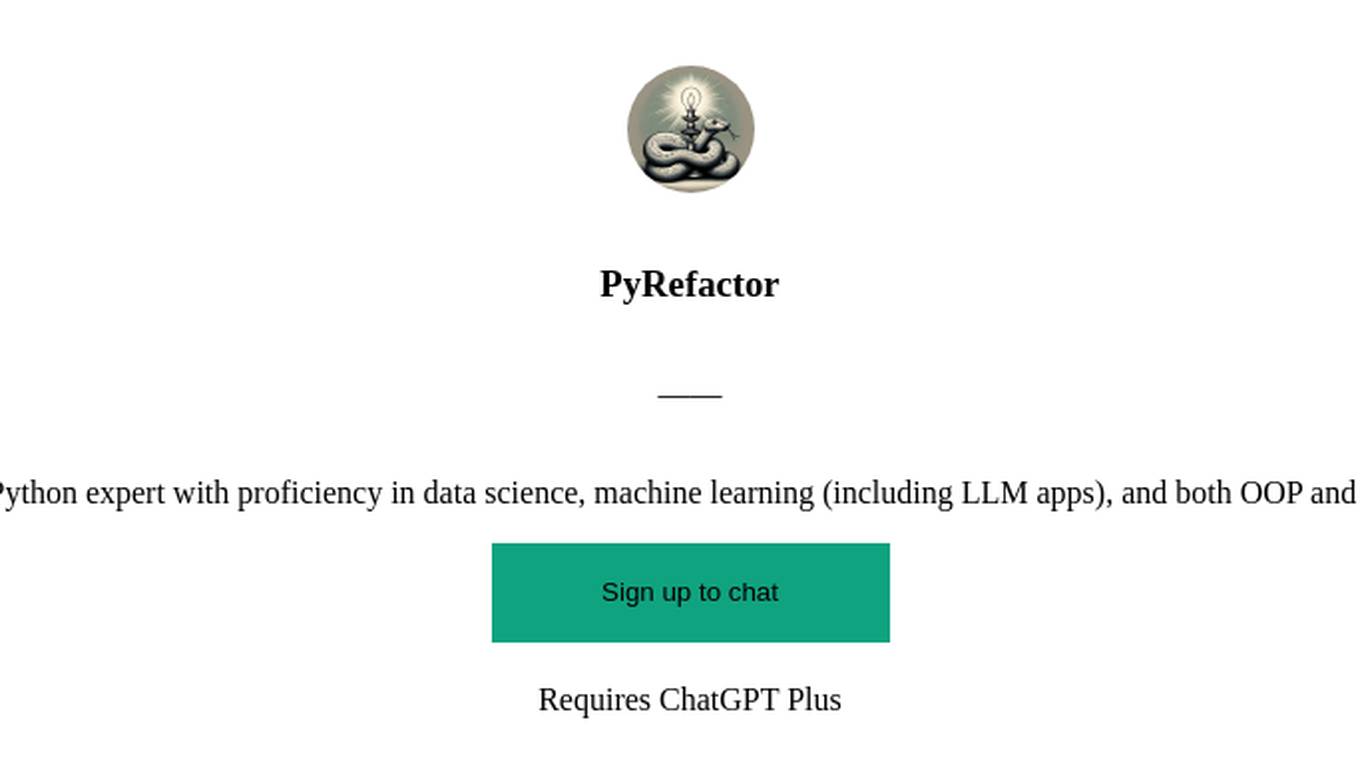
PyRefactor
Refactor python code. Python expert with proficiency in data science, machine learning (including LLM apps), and both OOP and functional programming.
